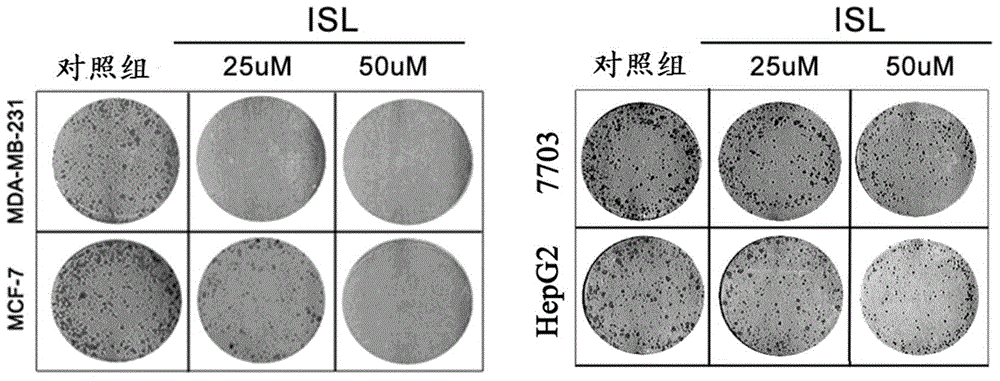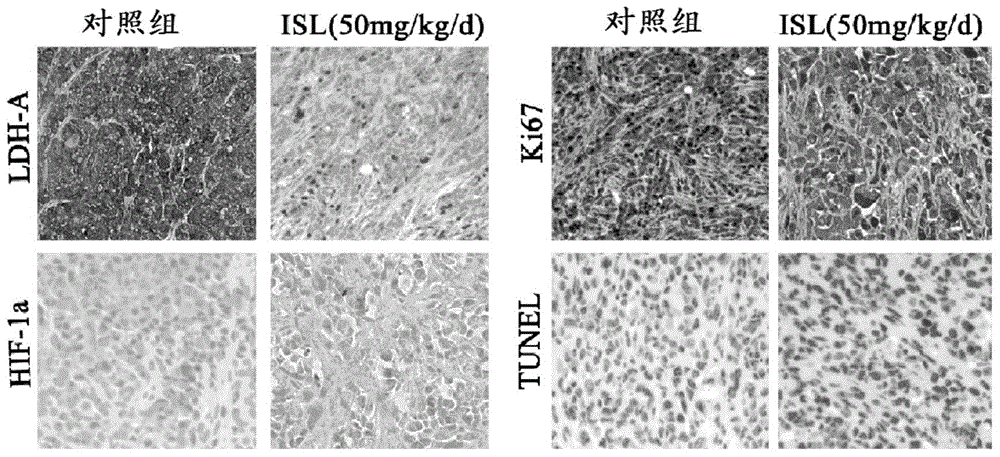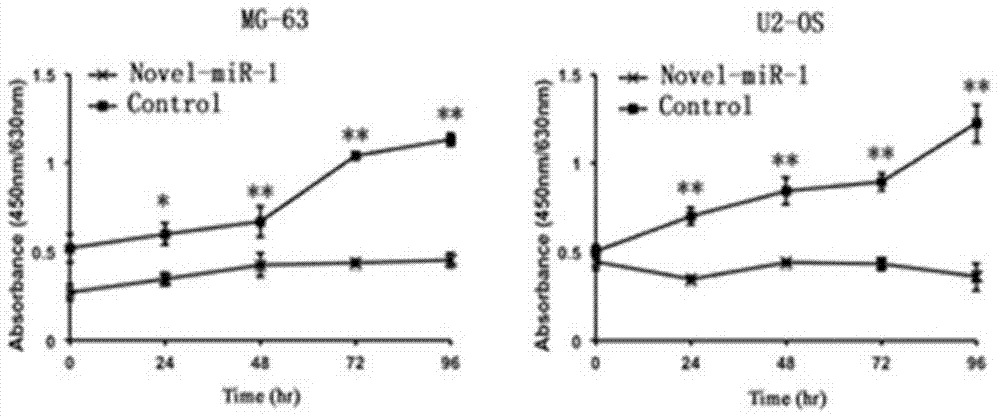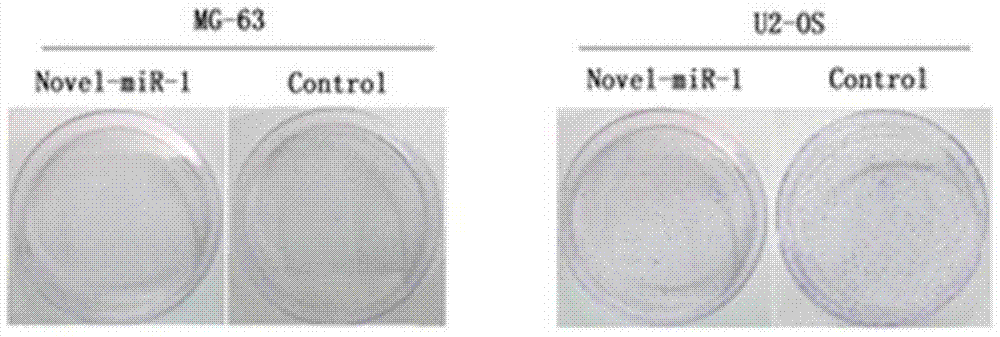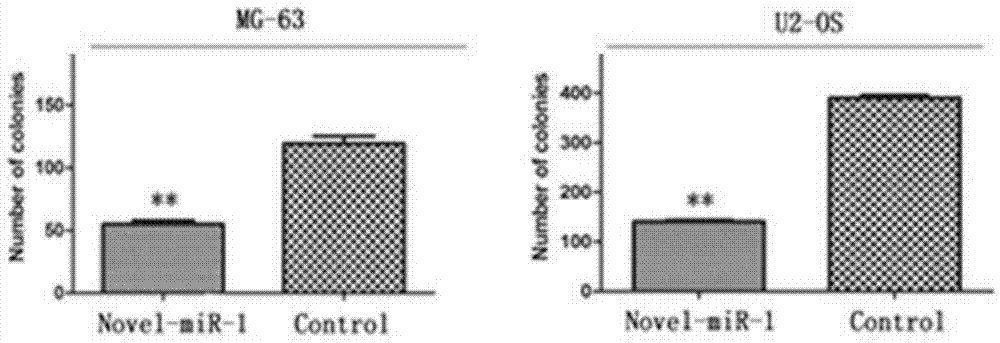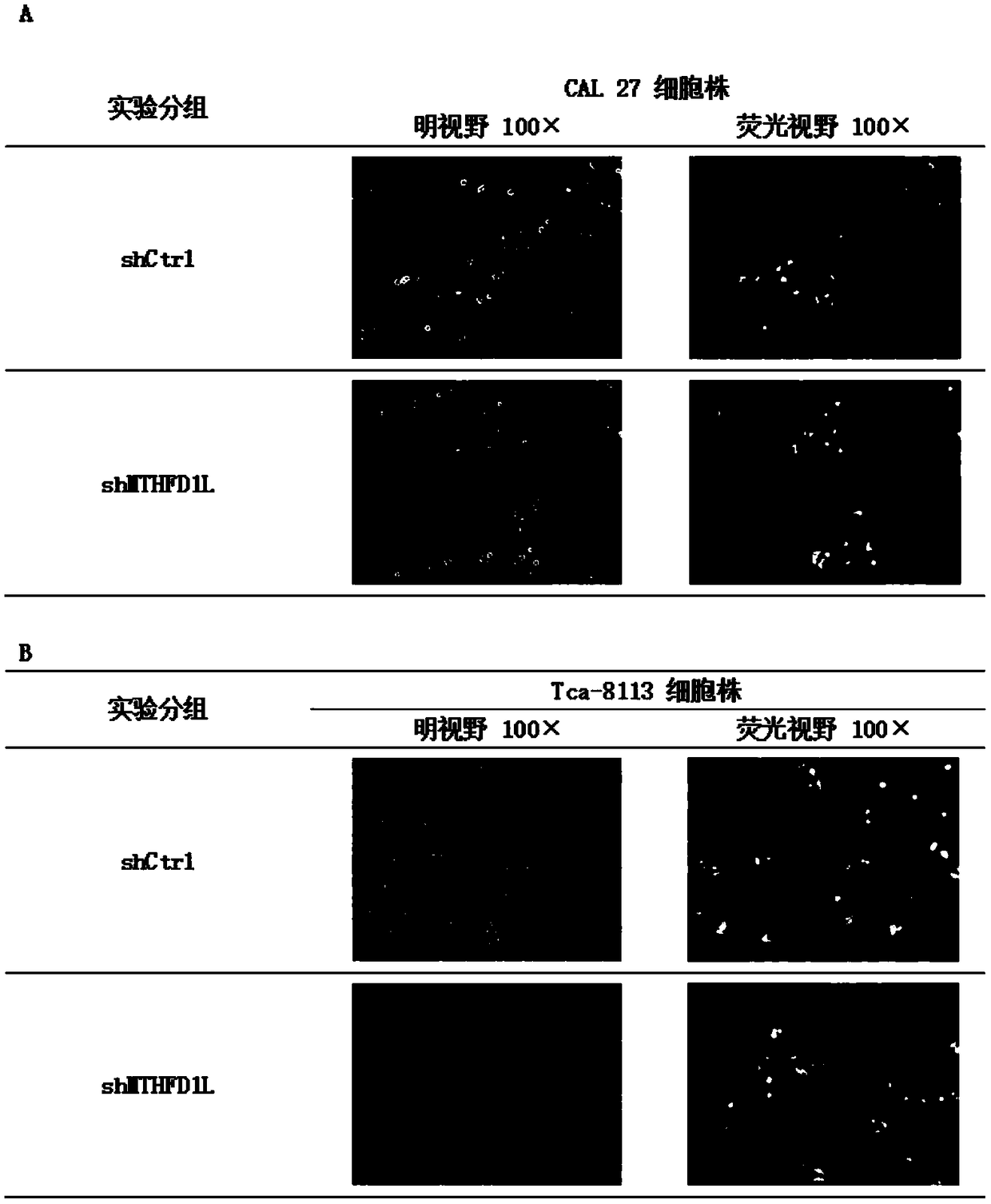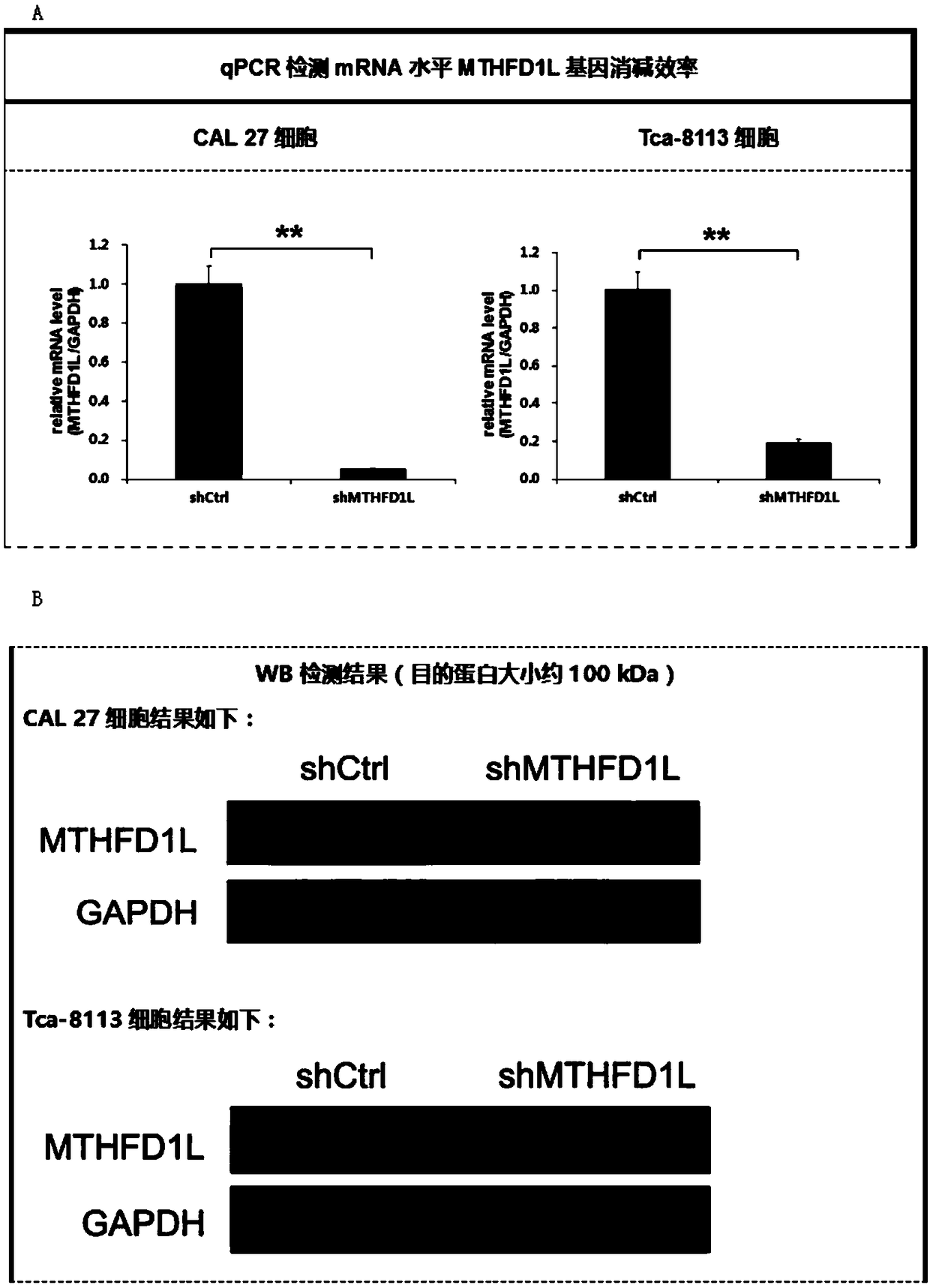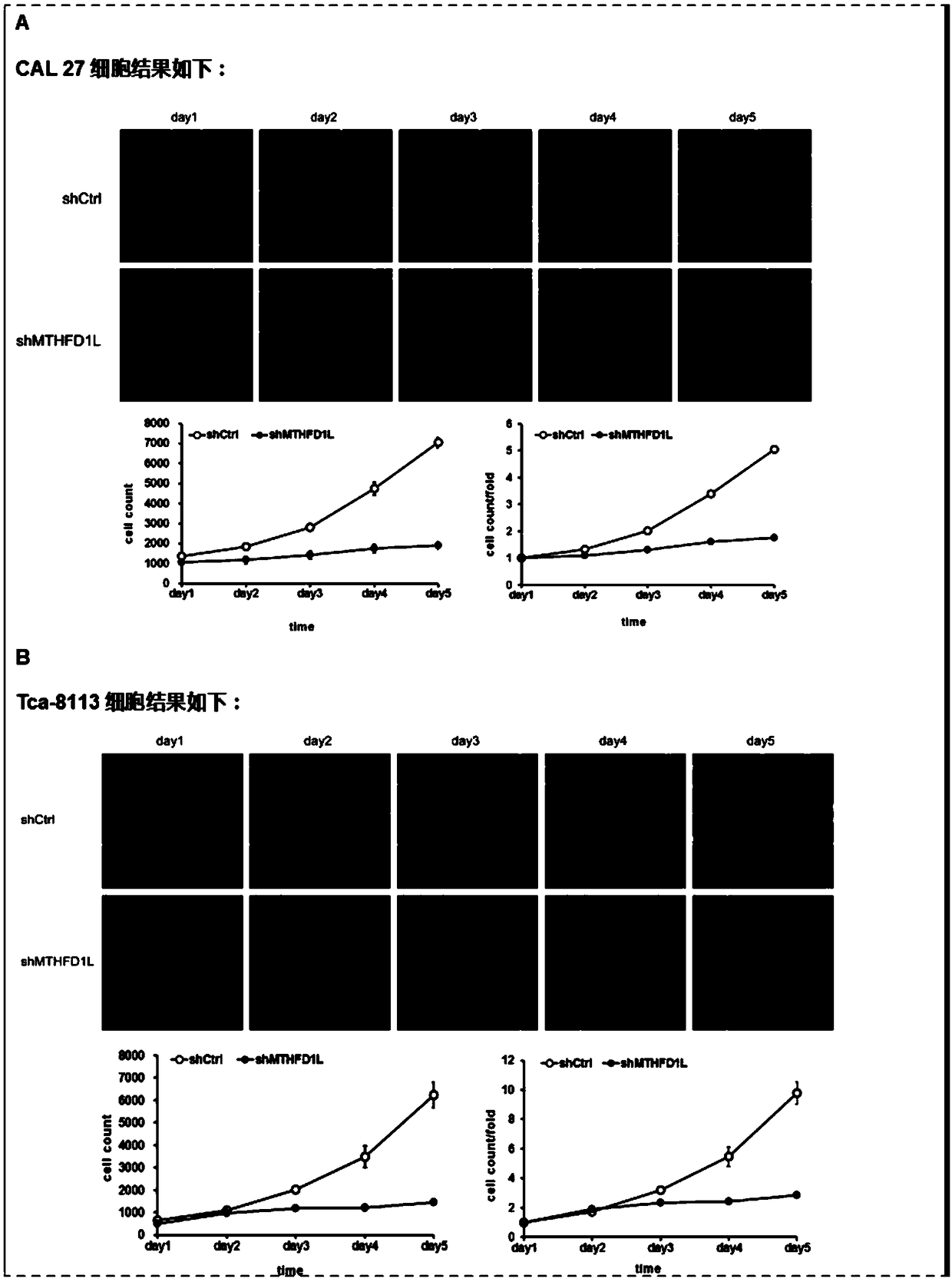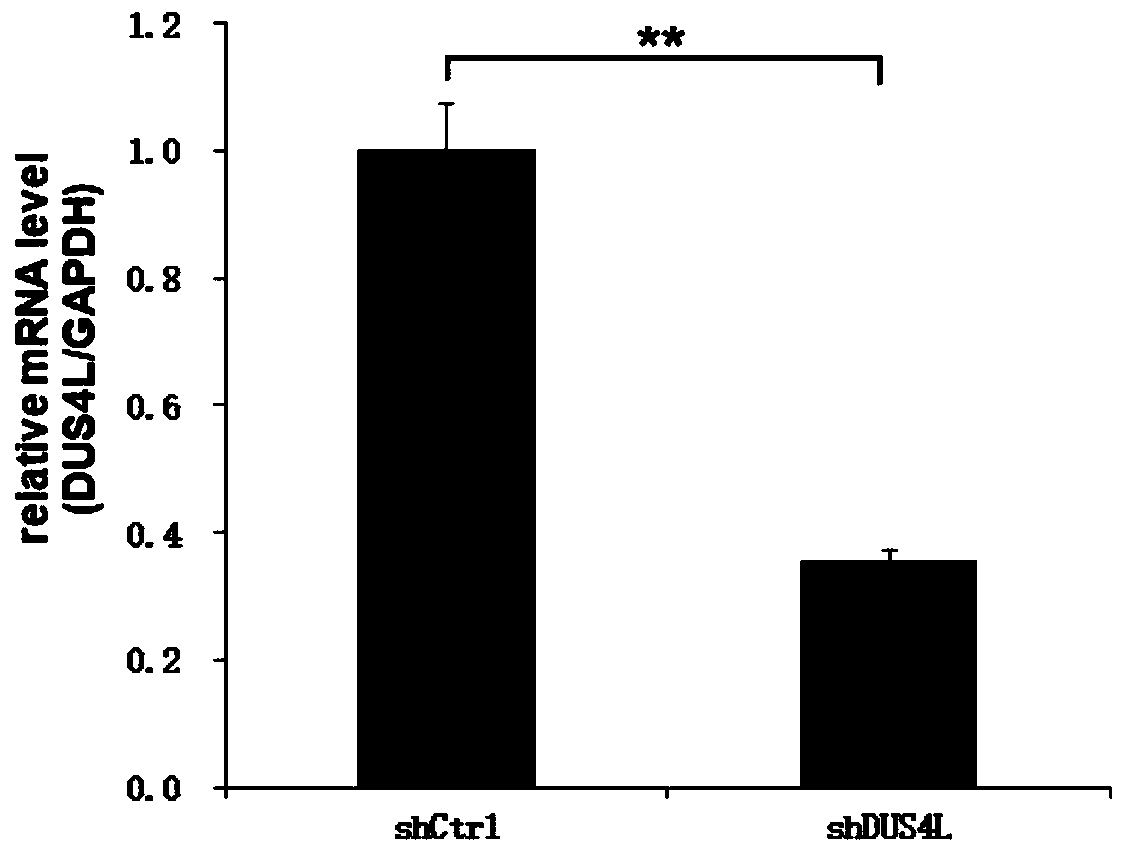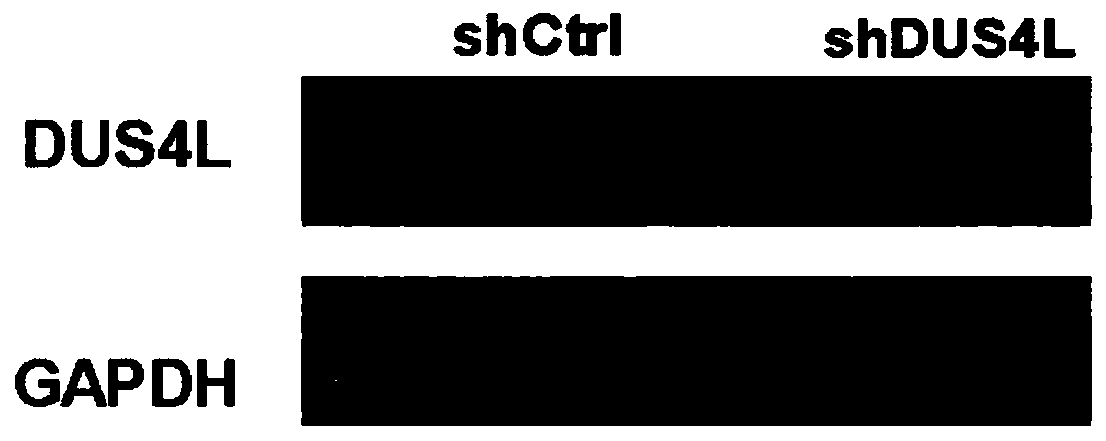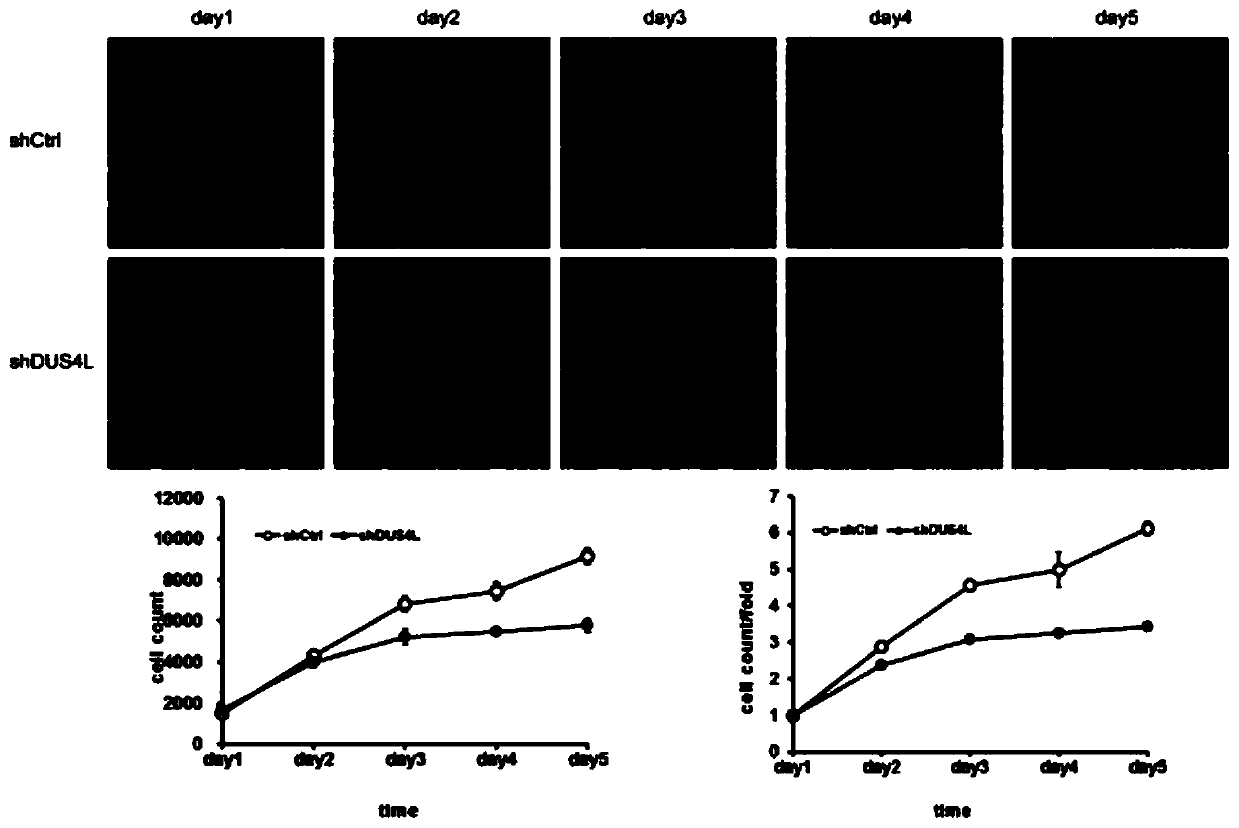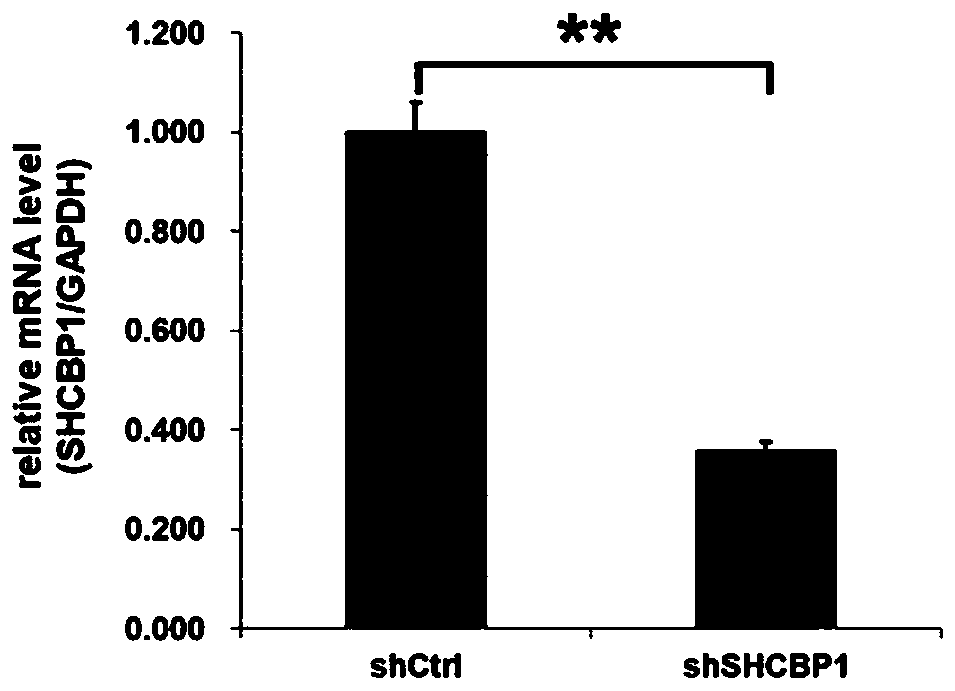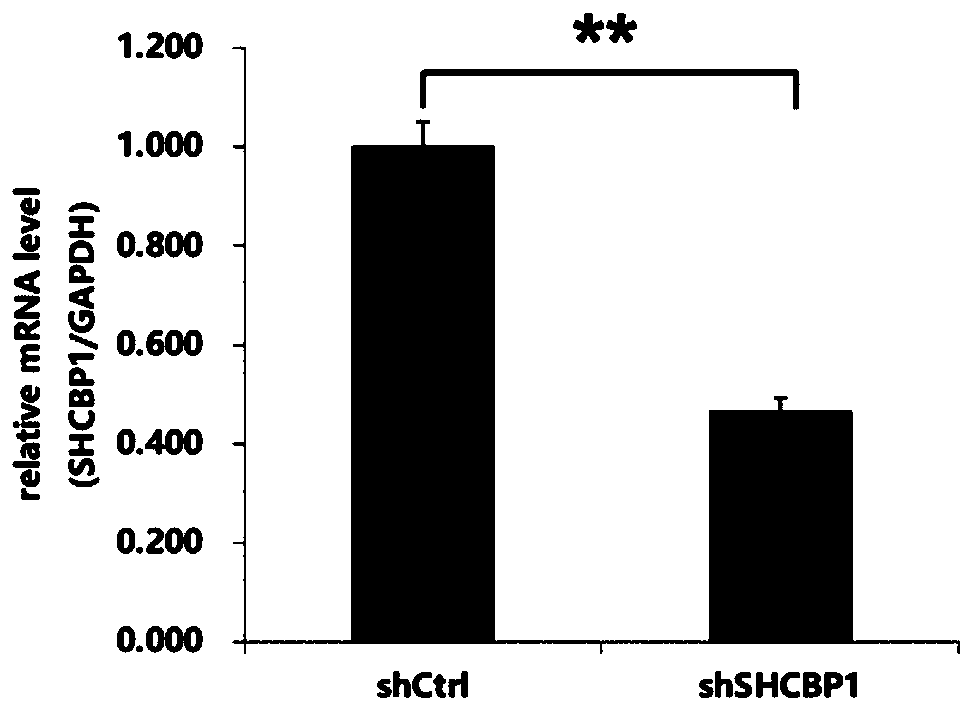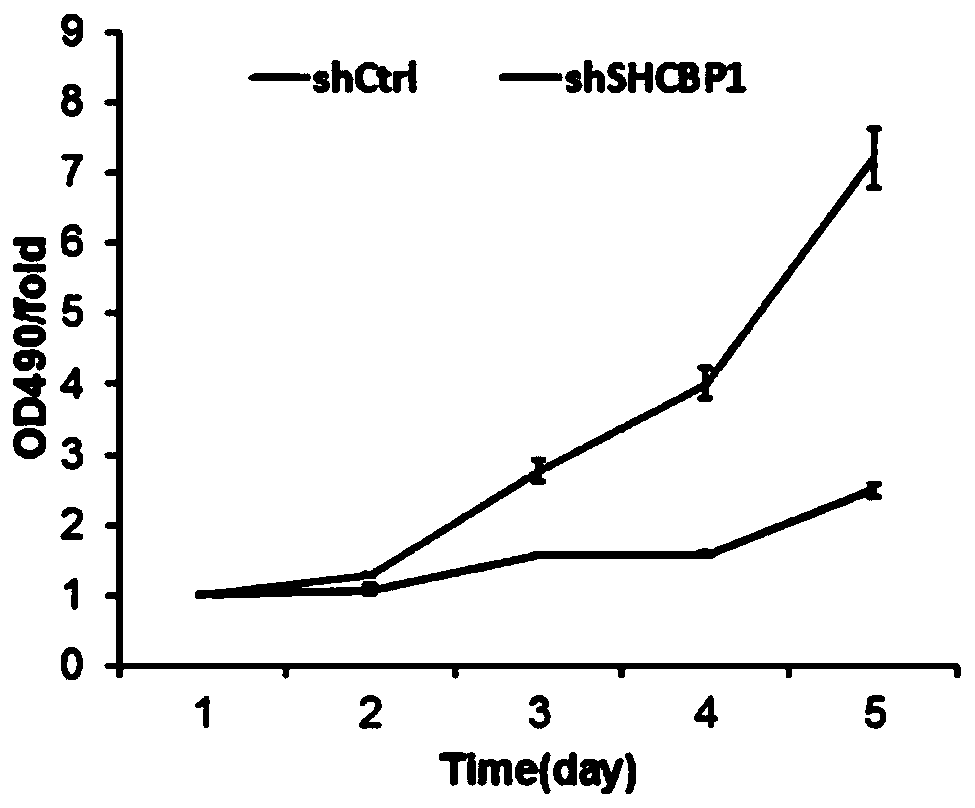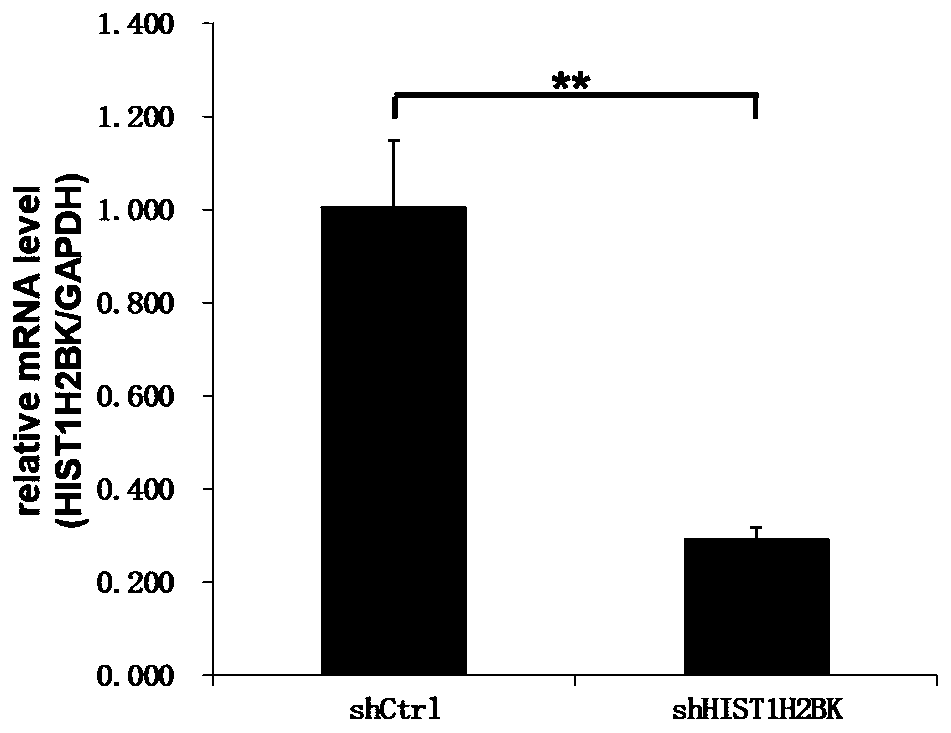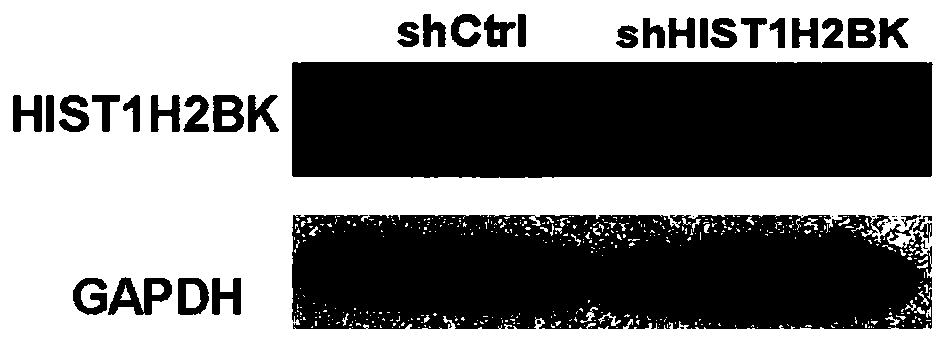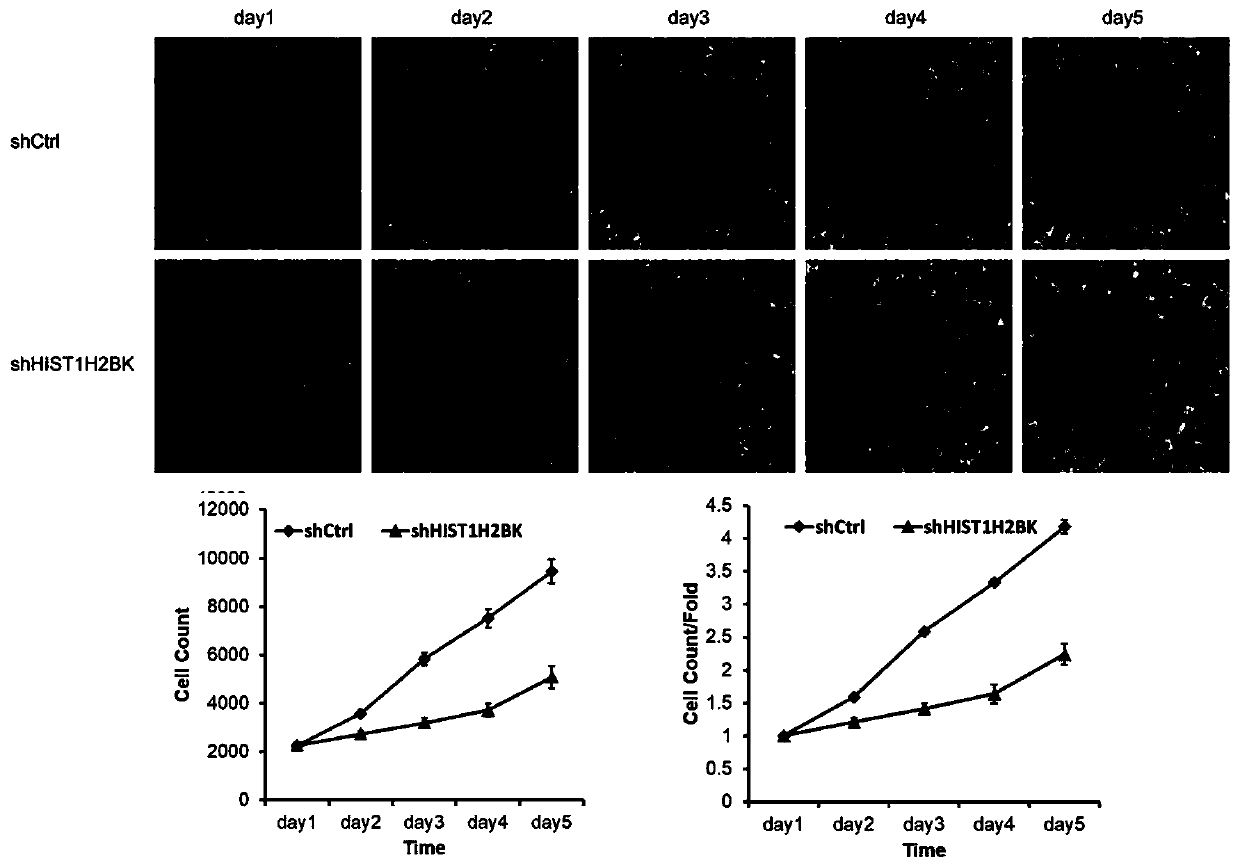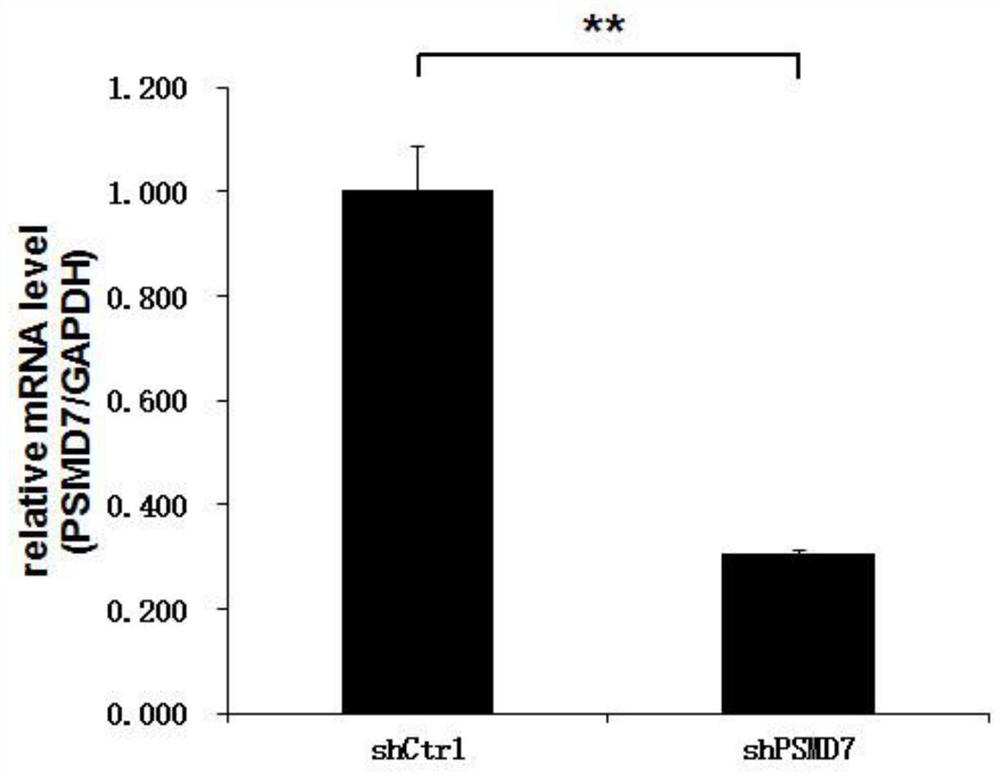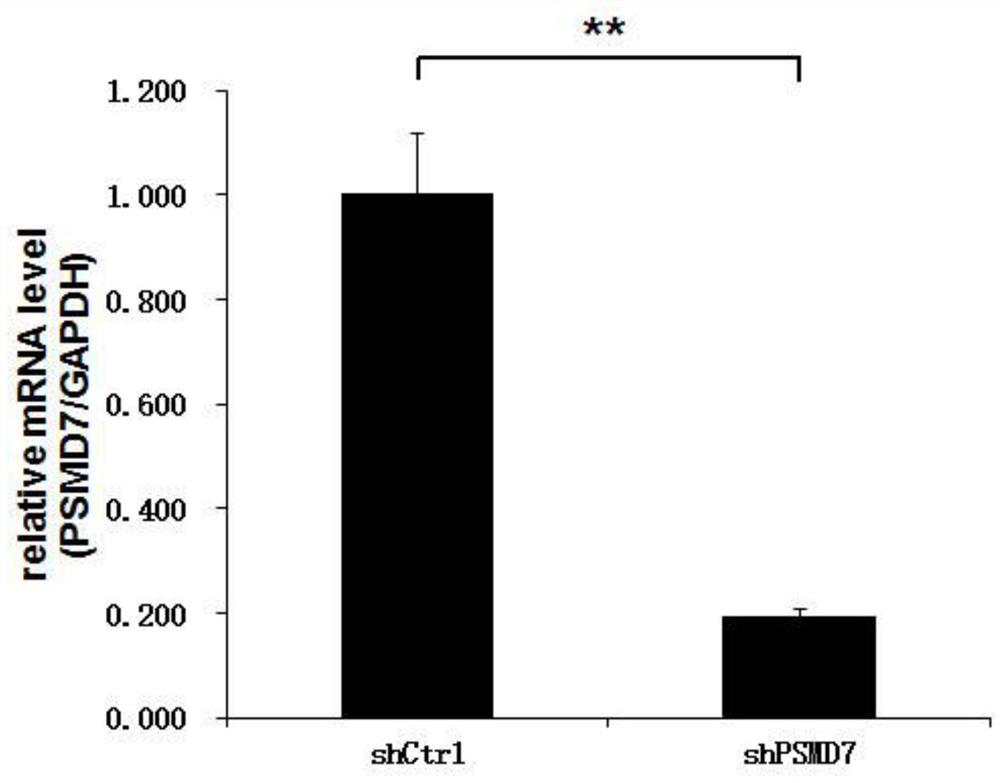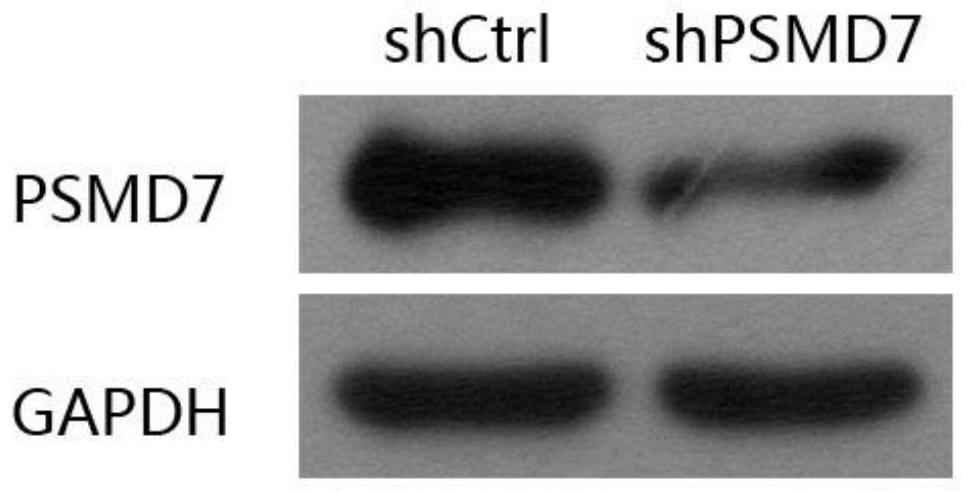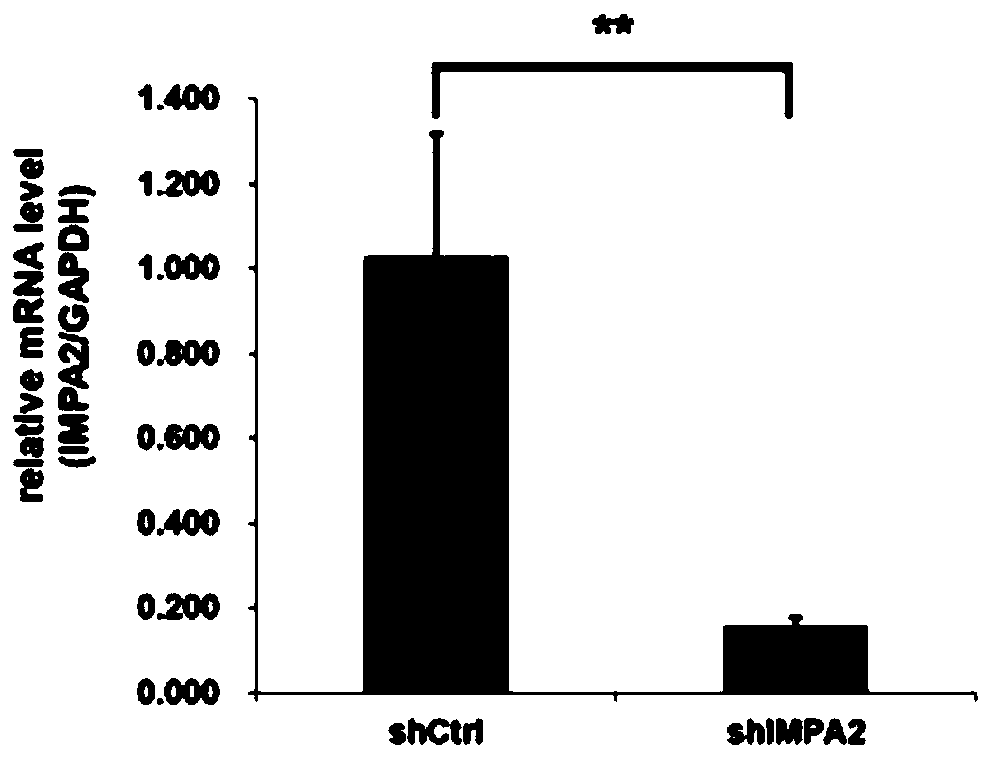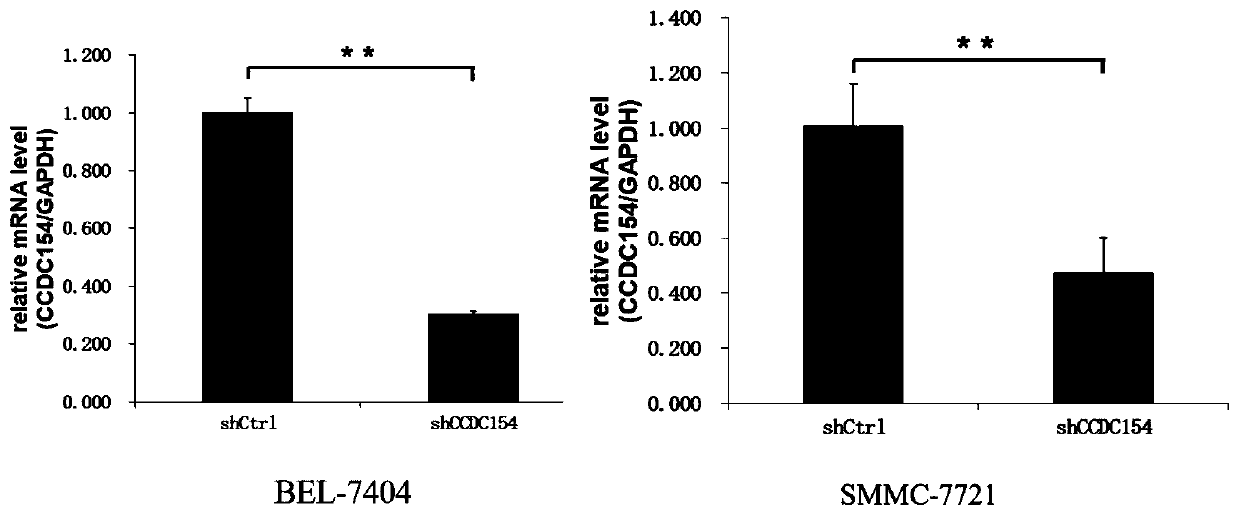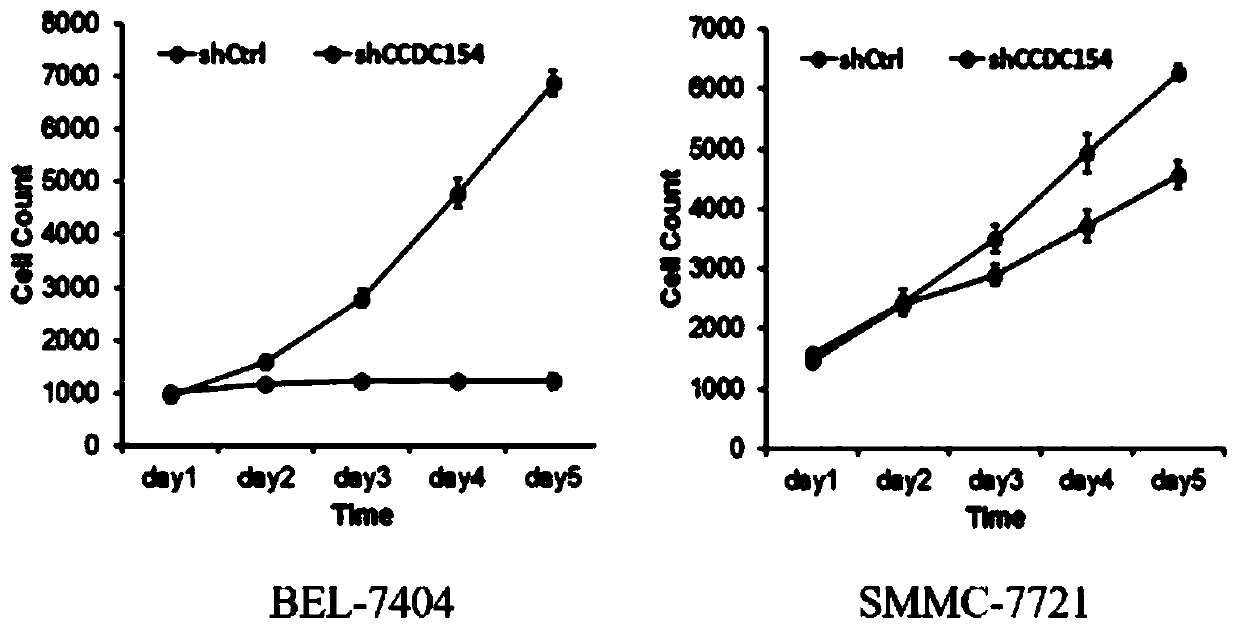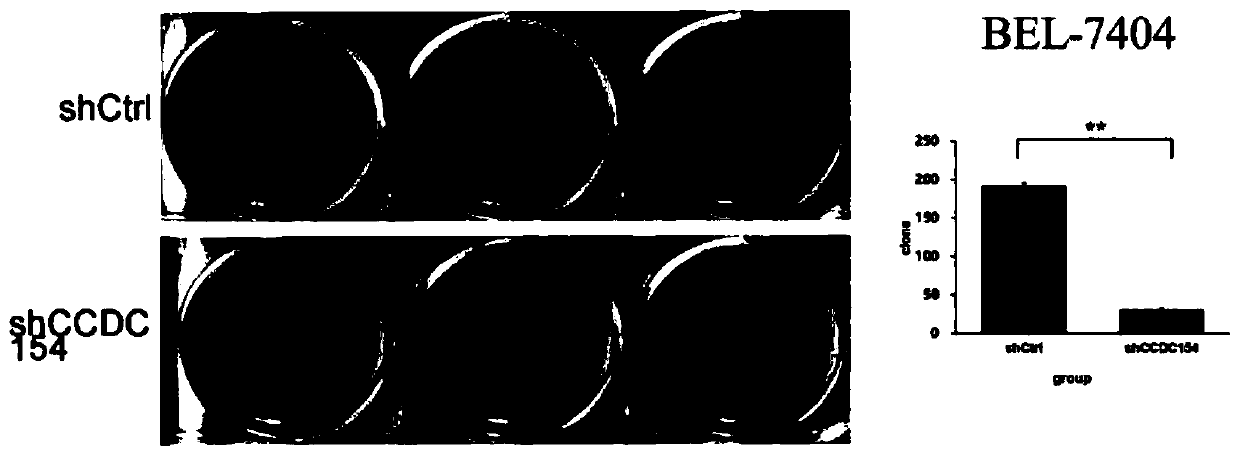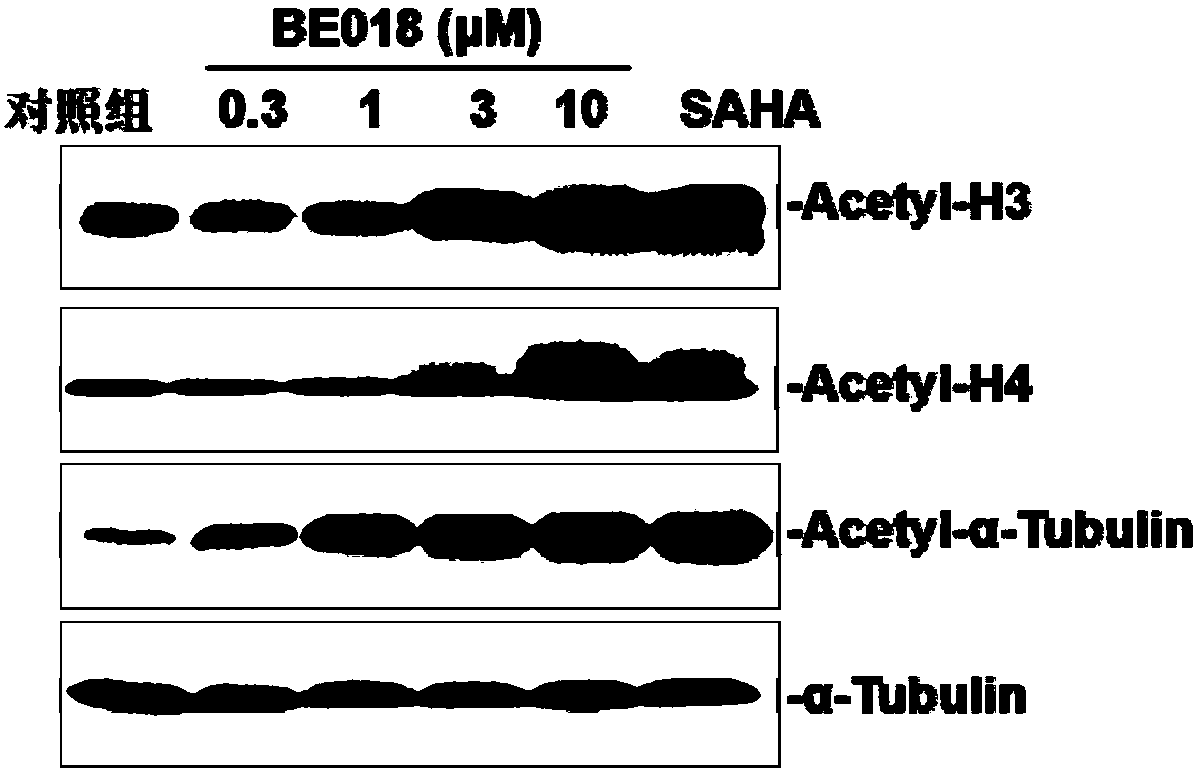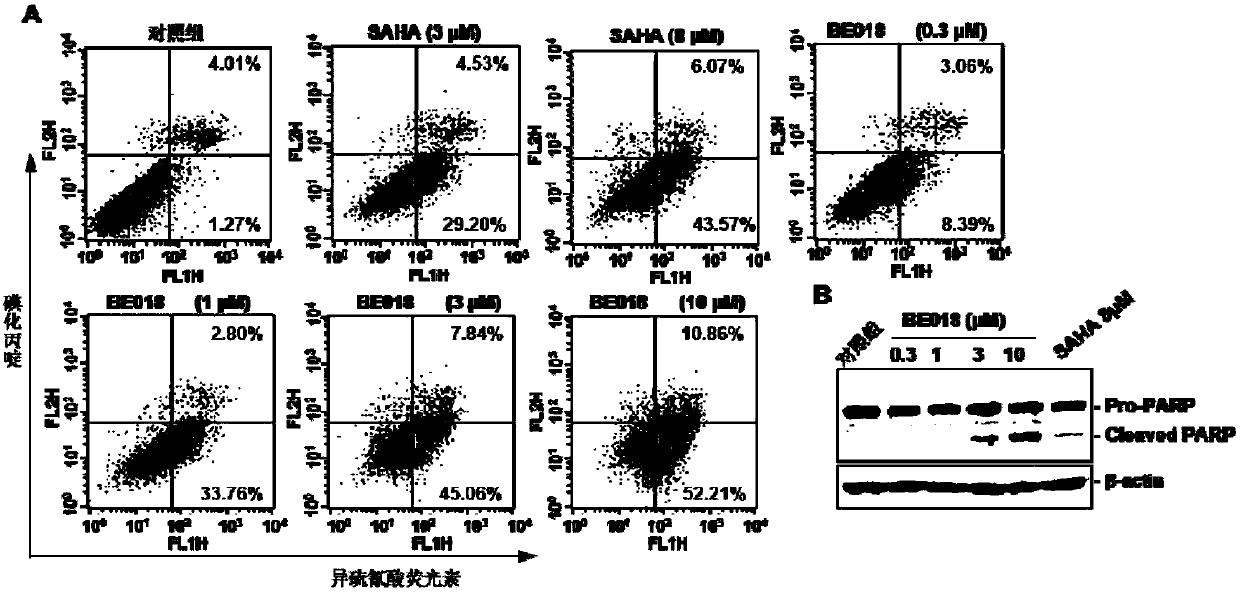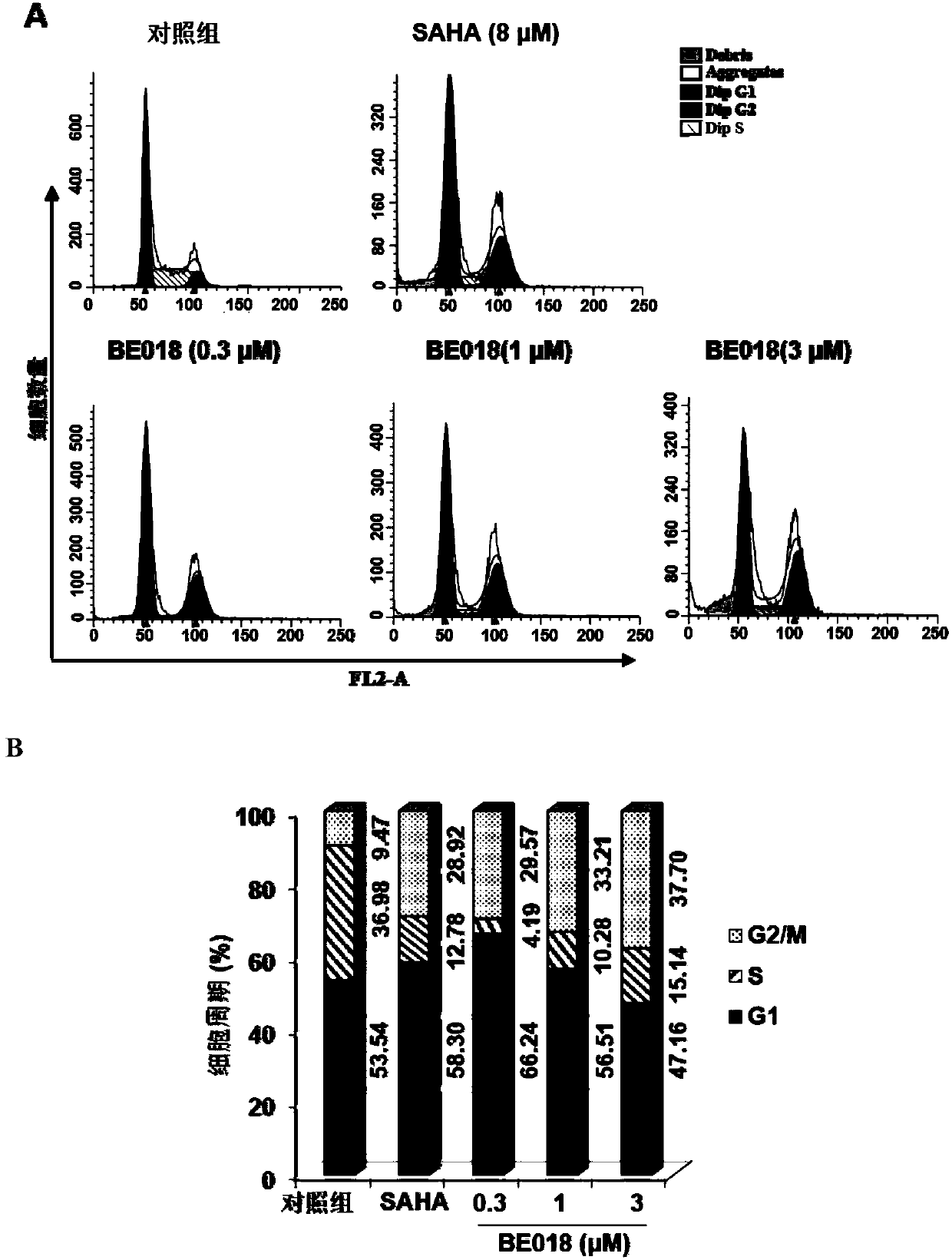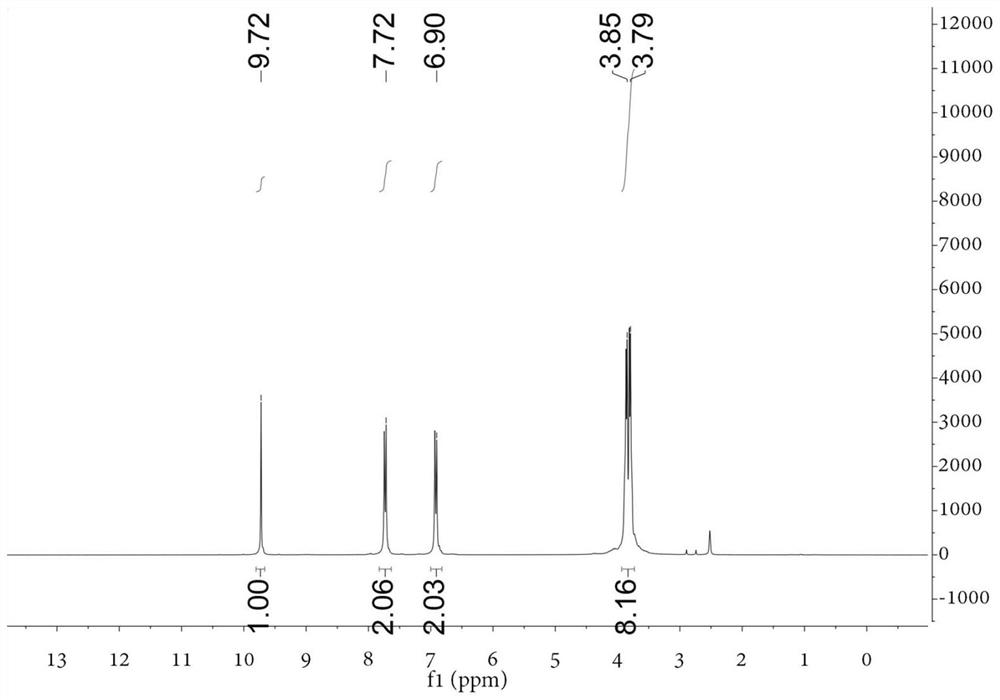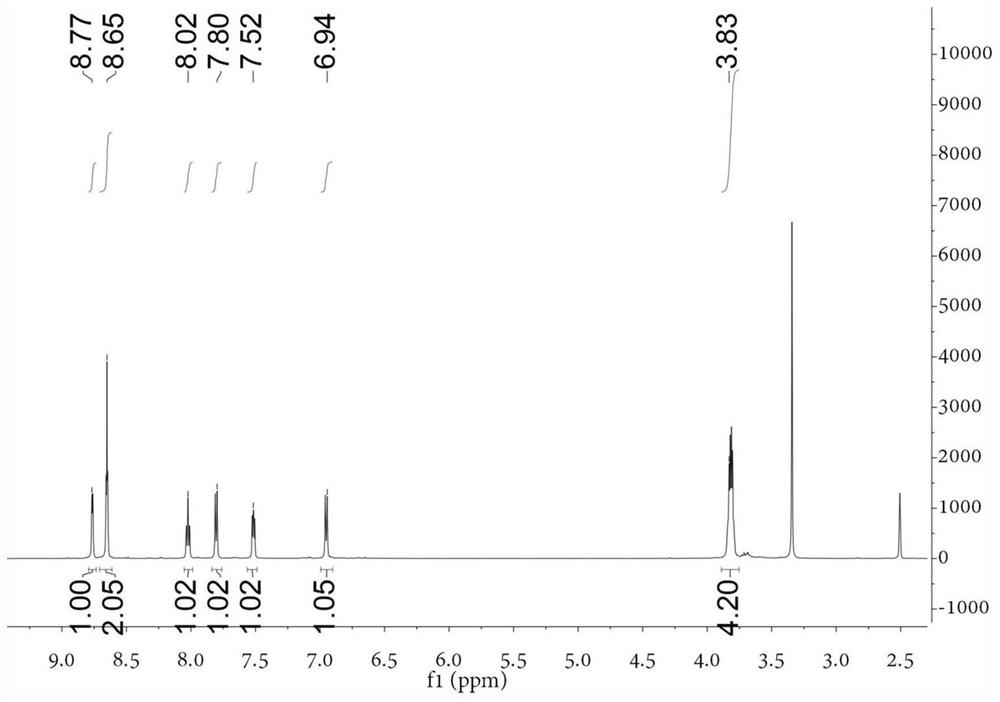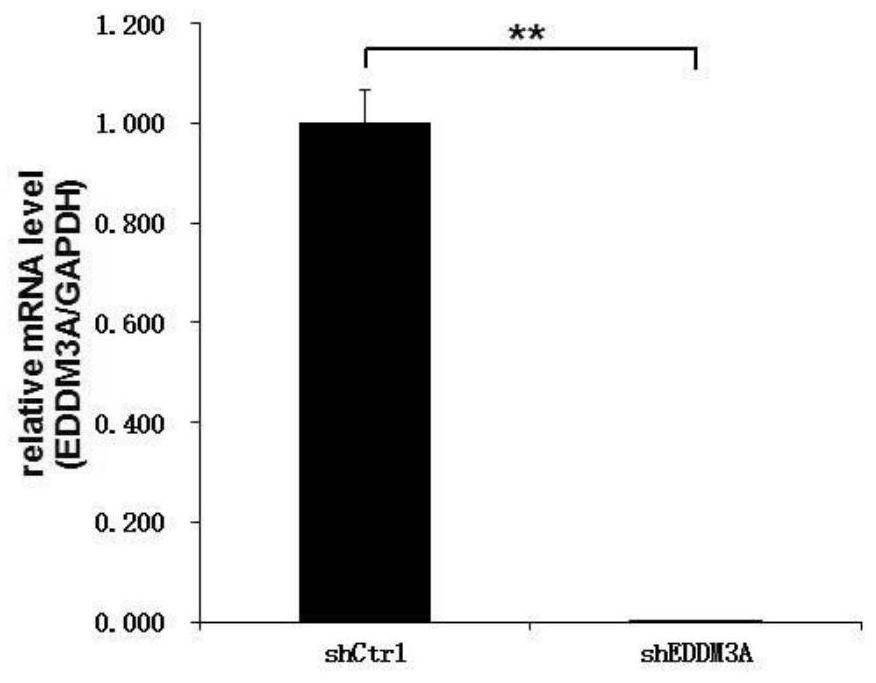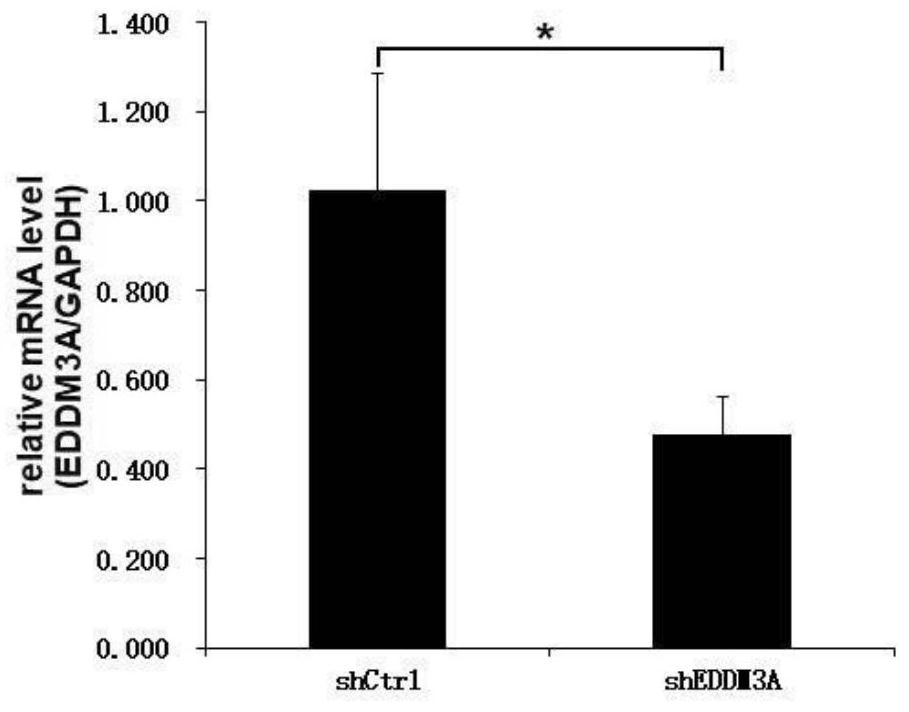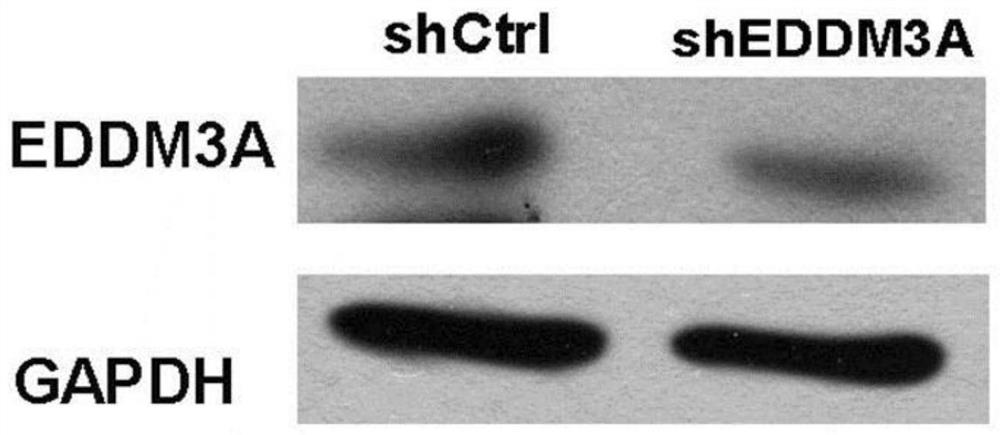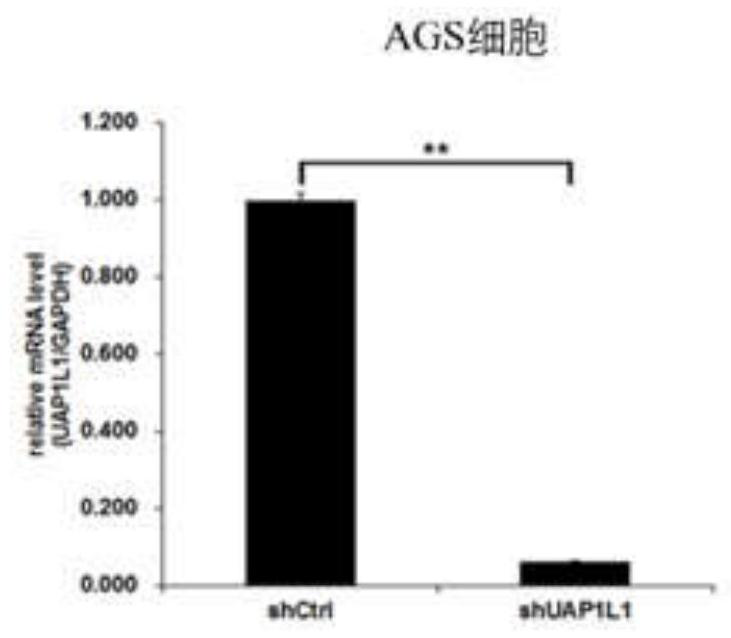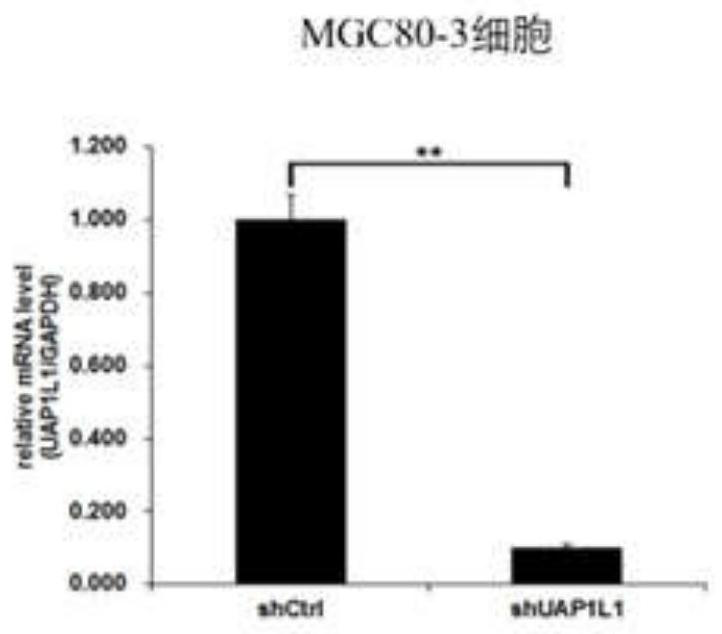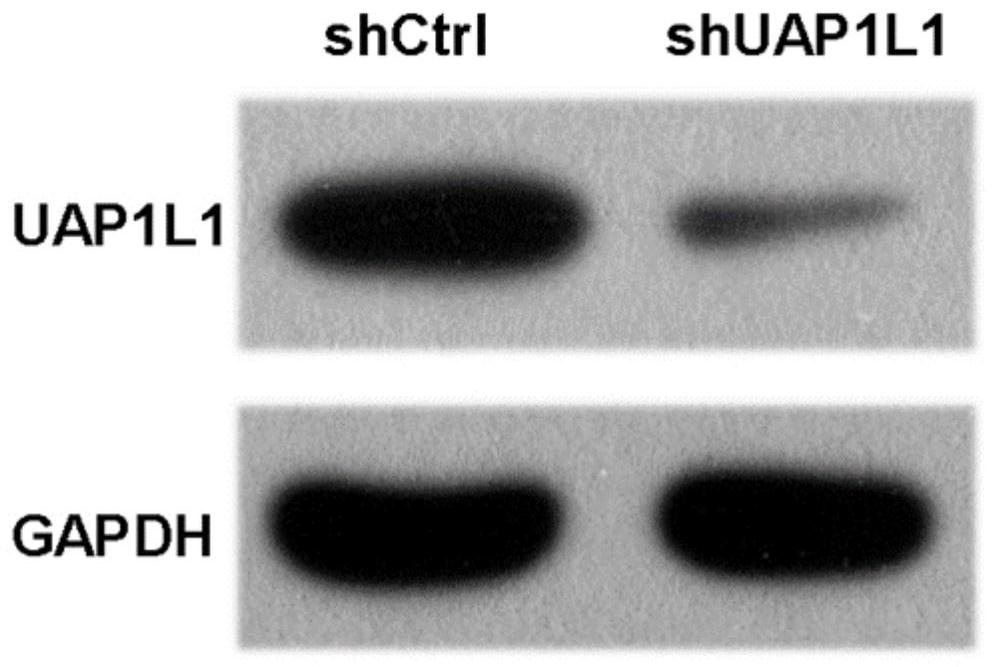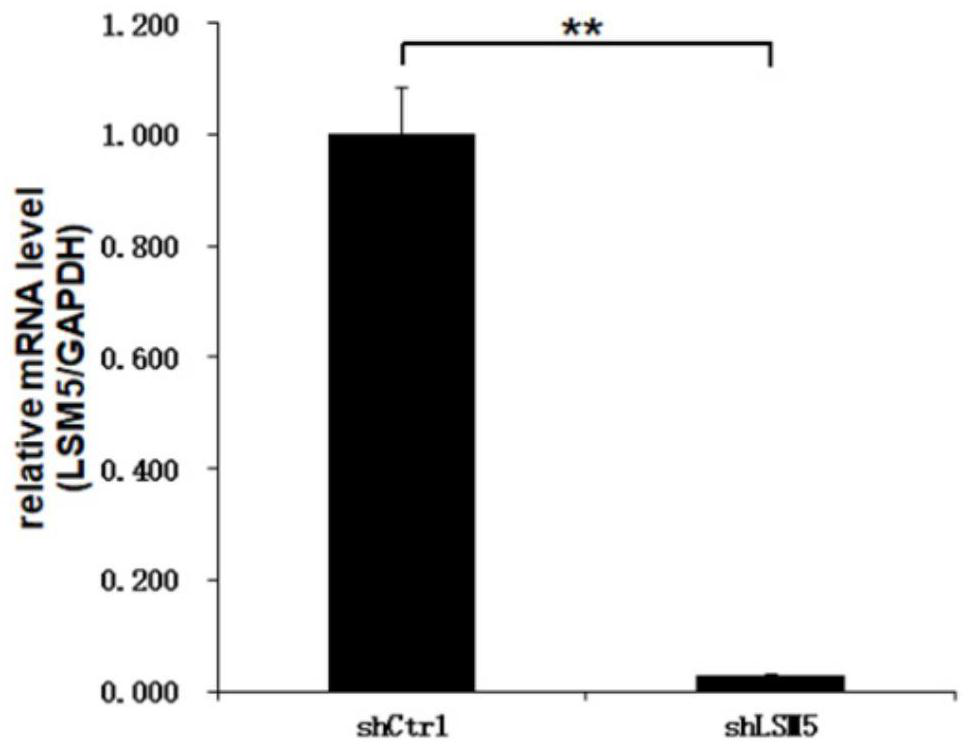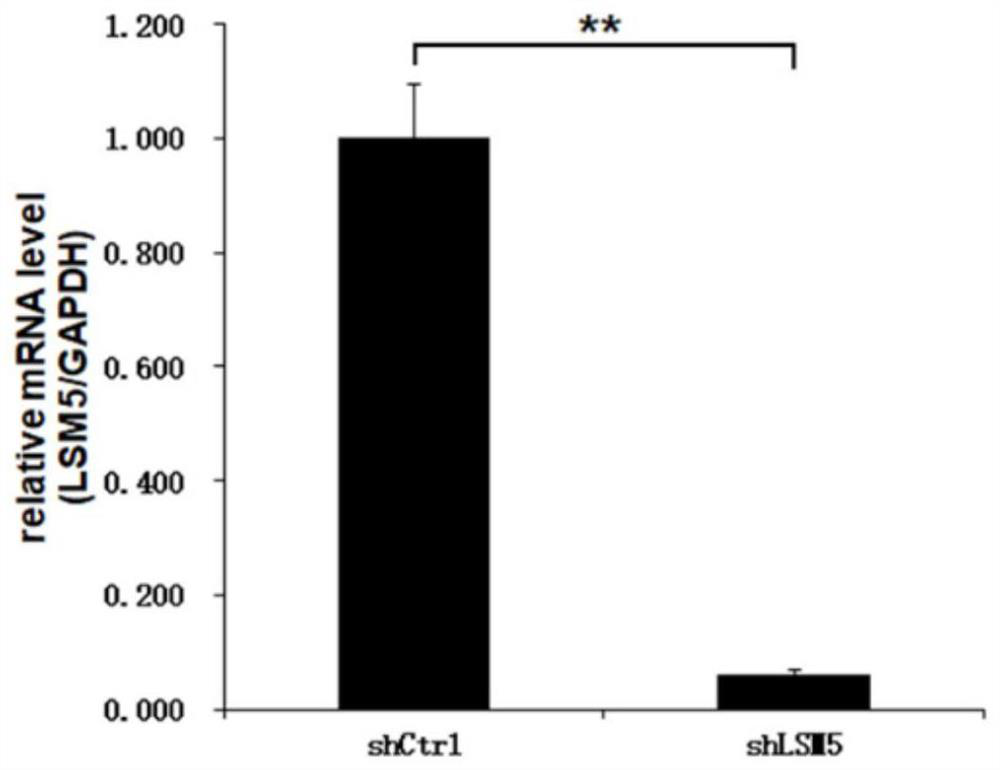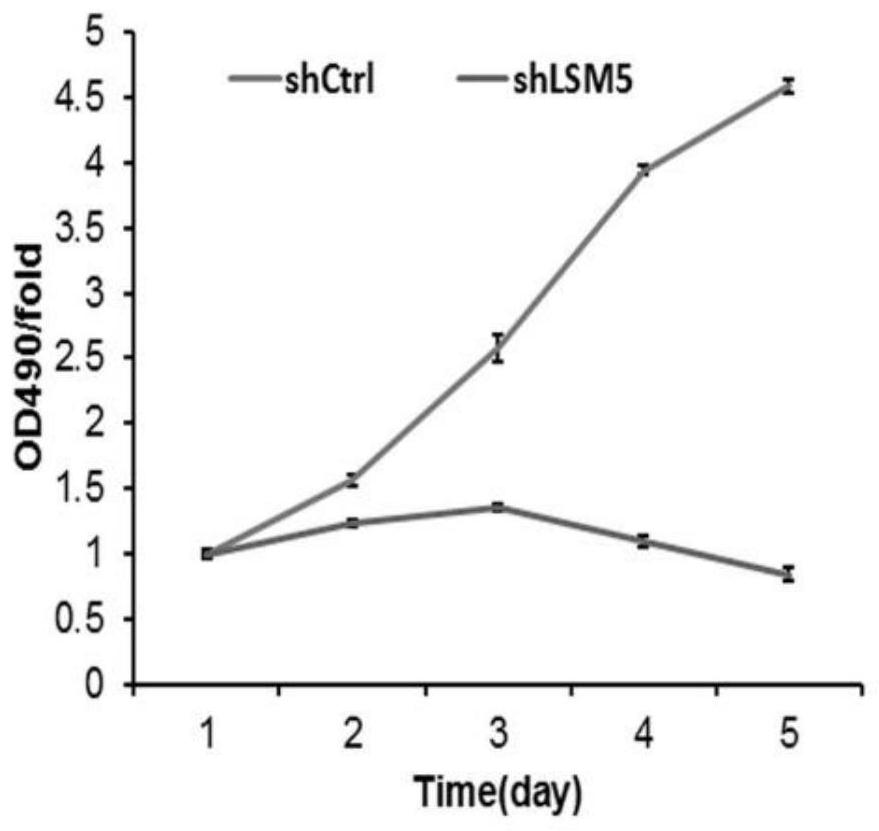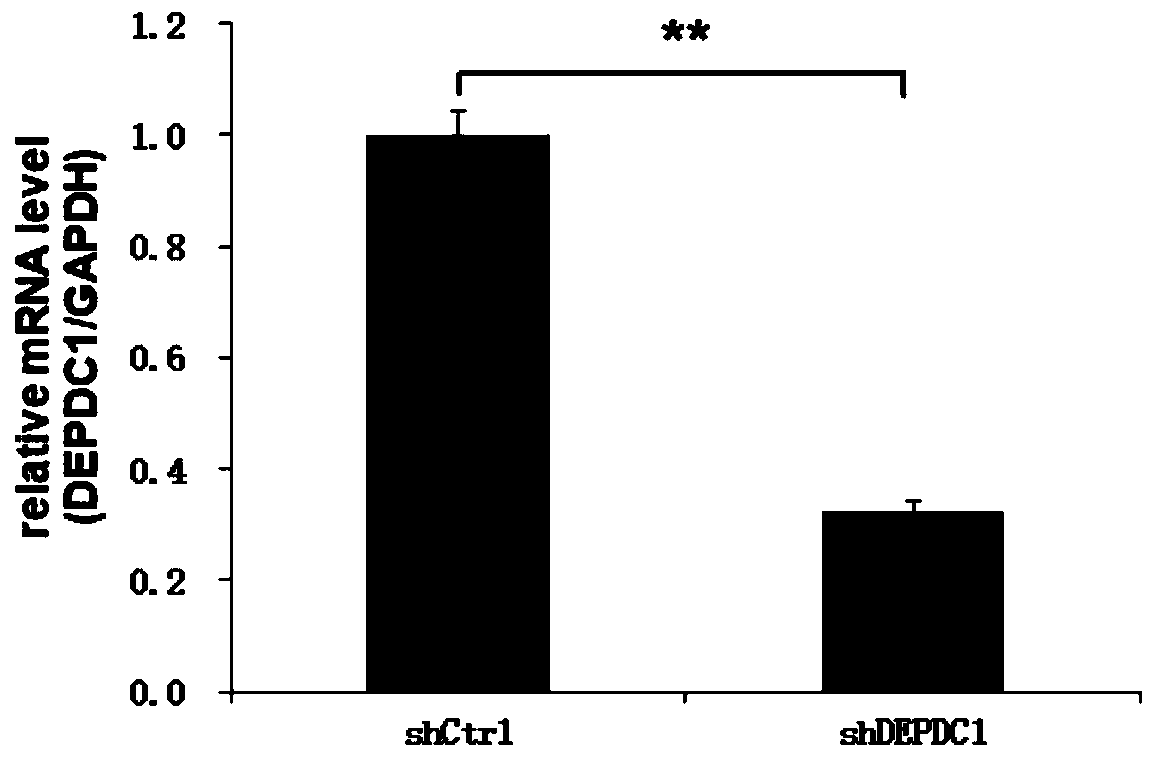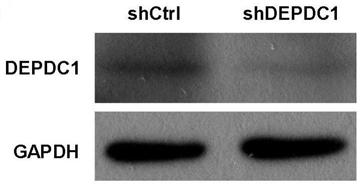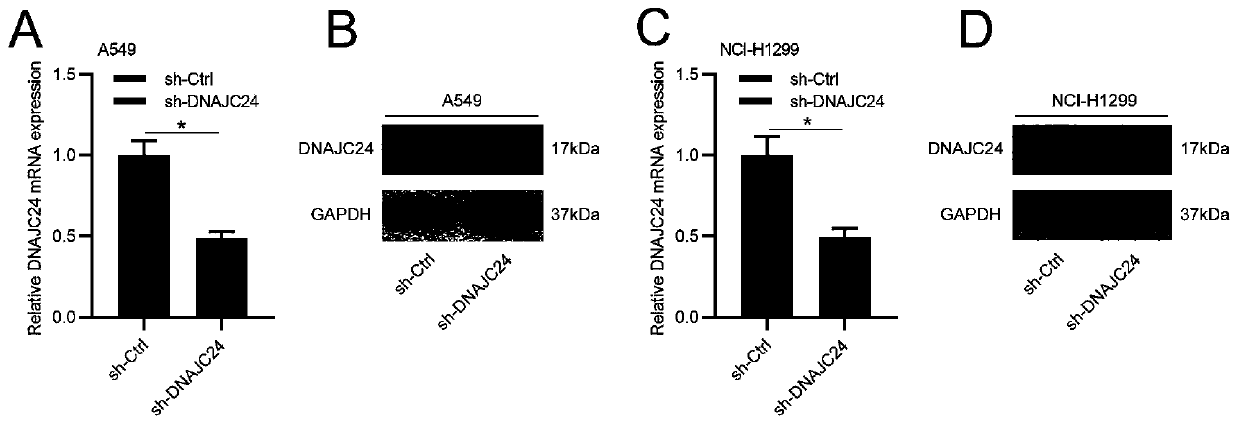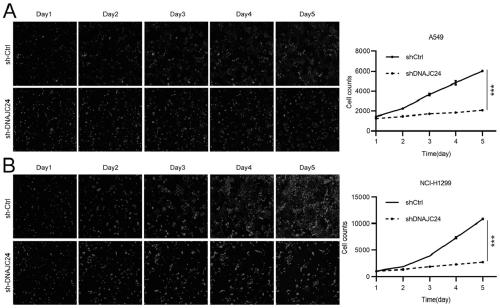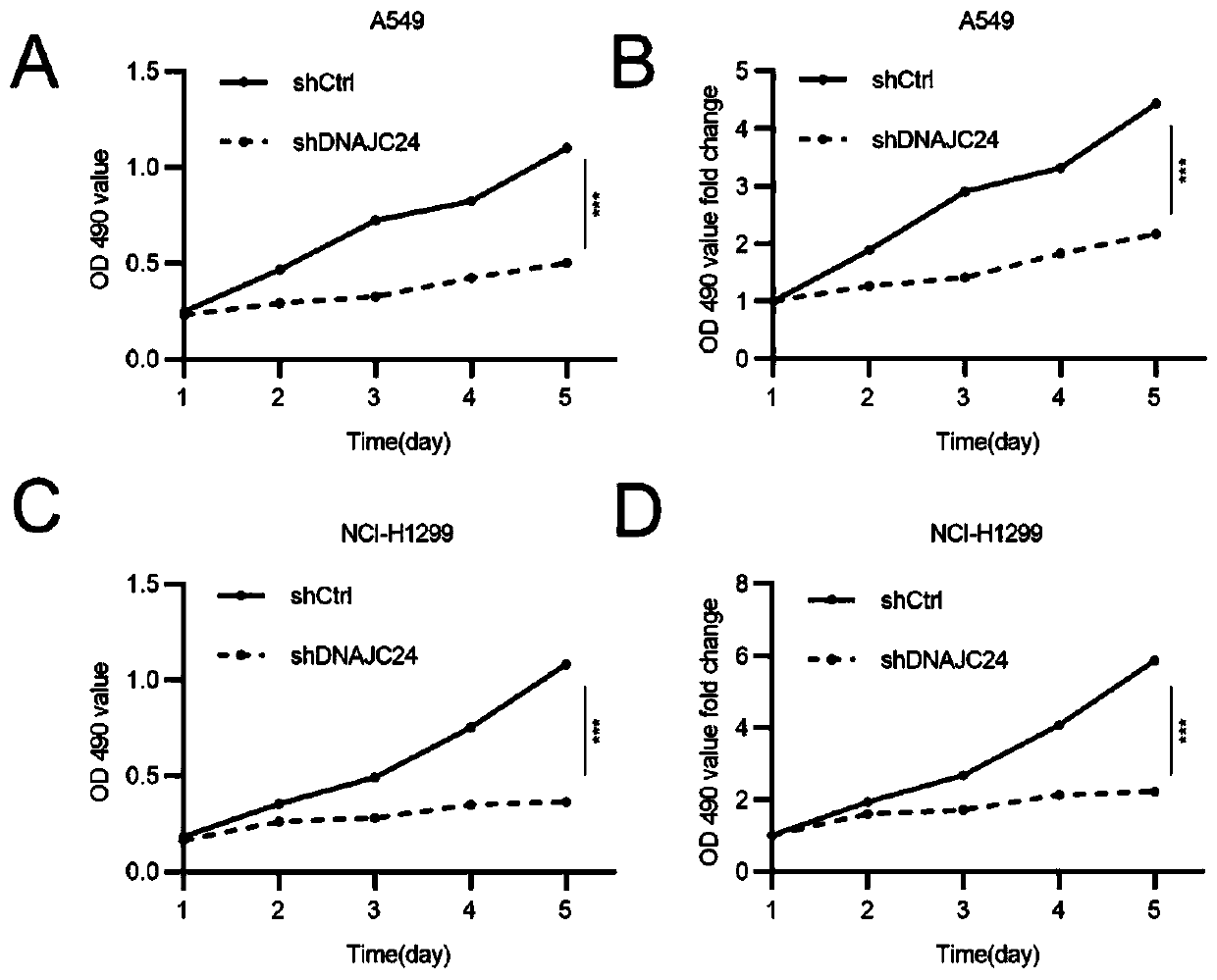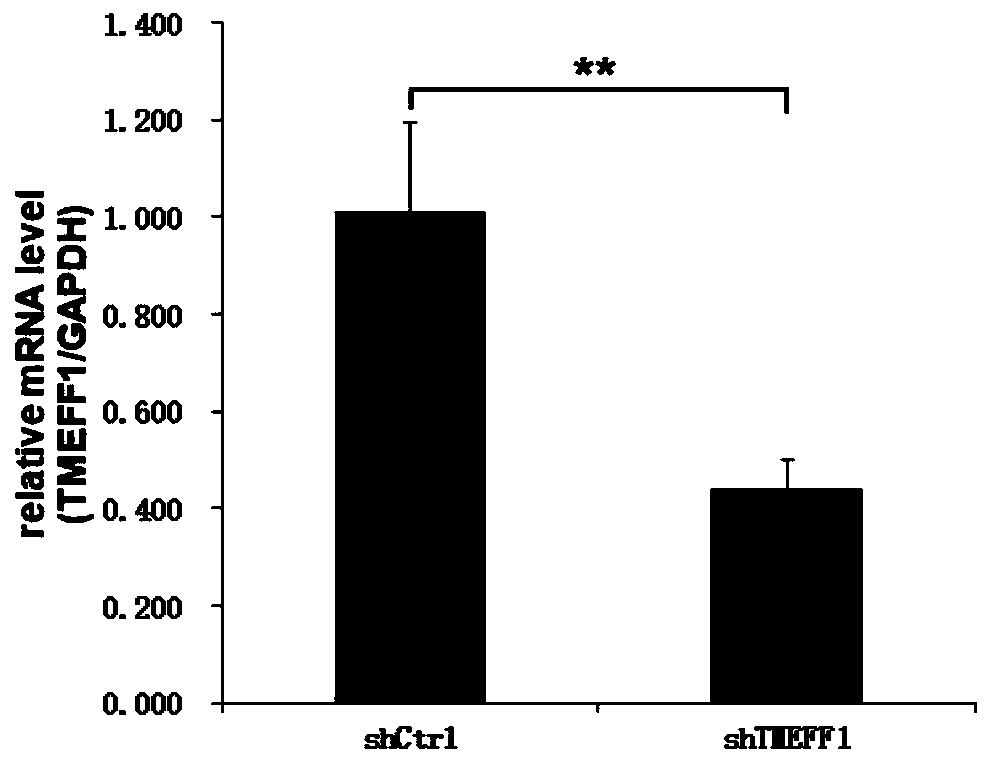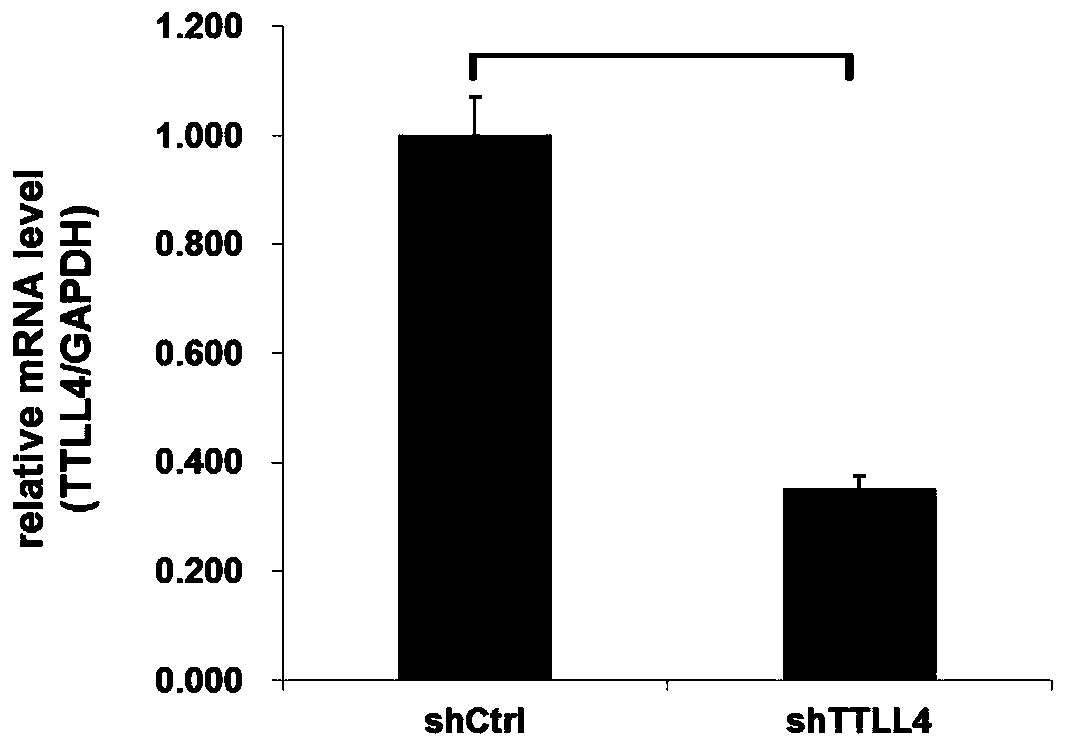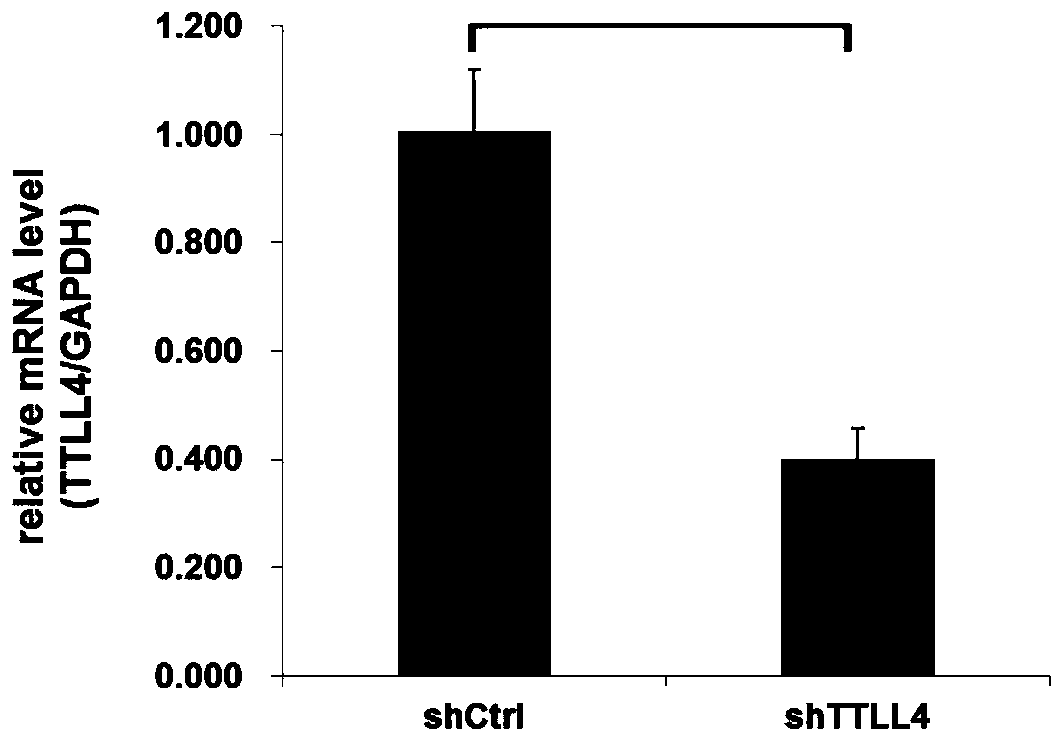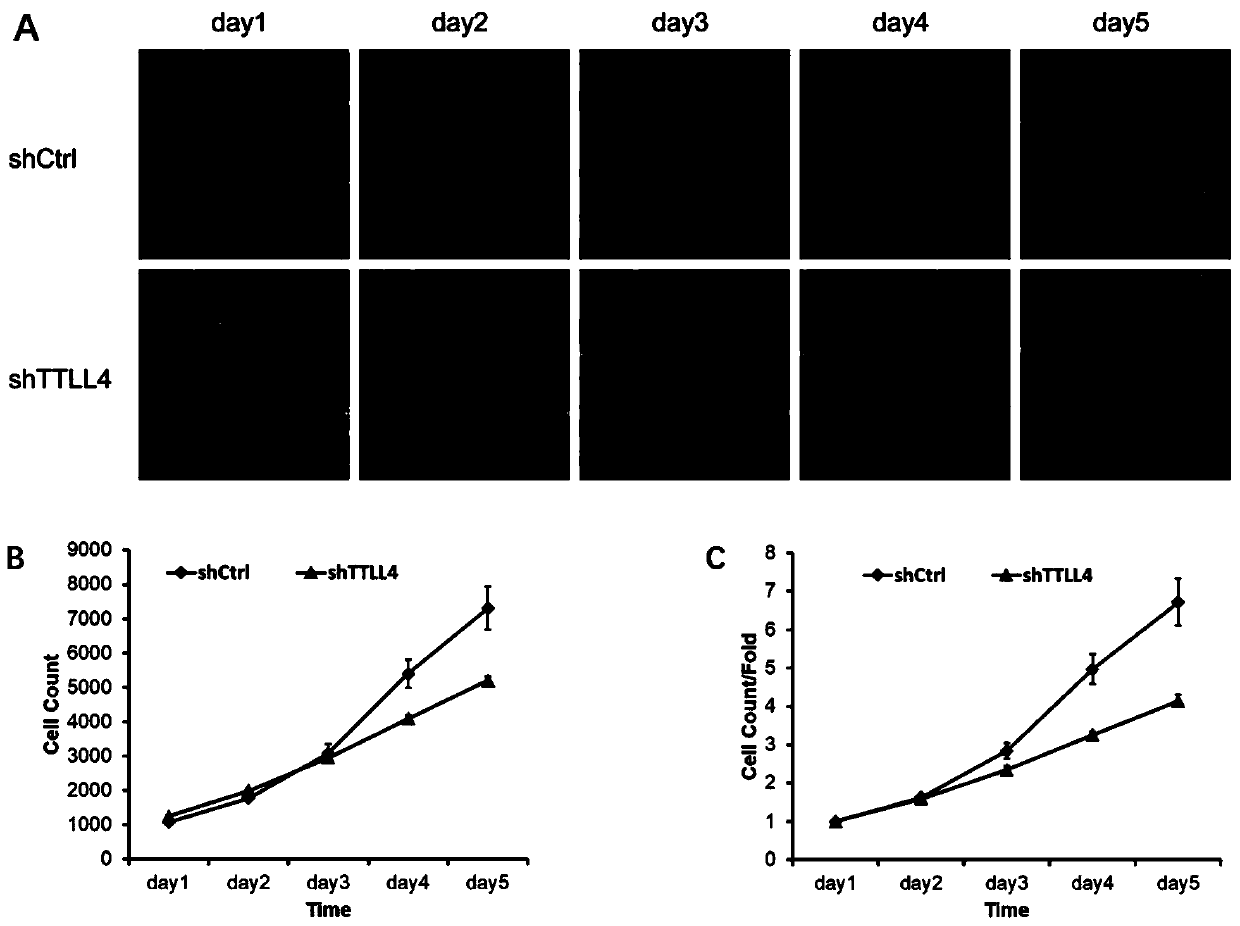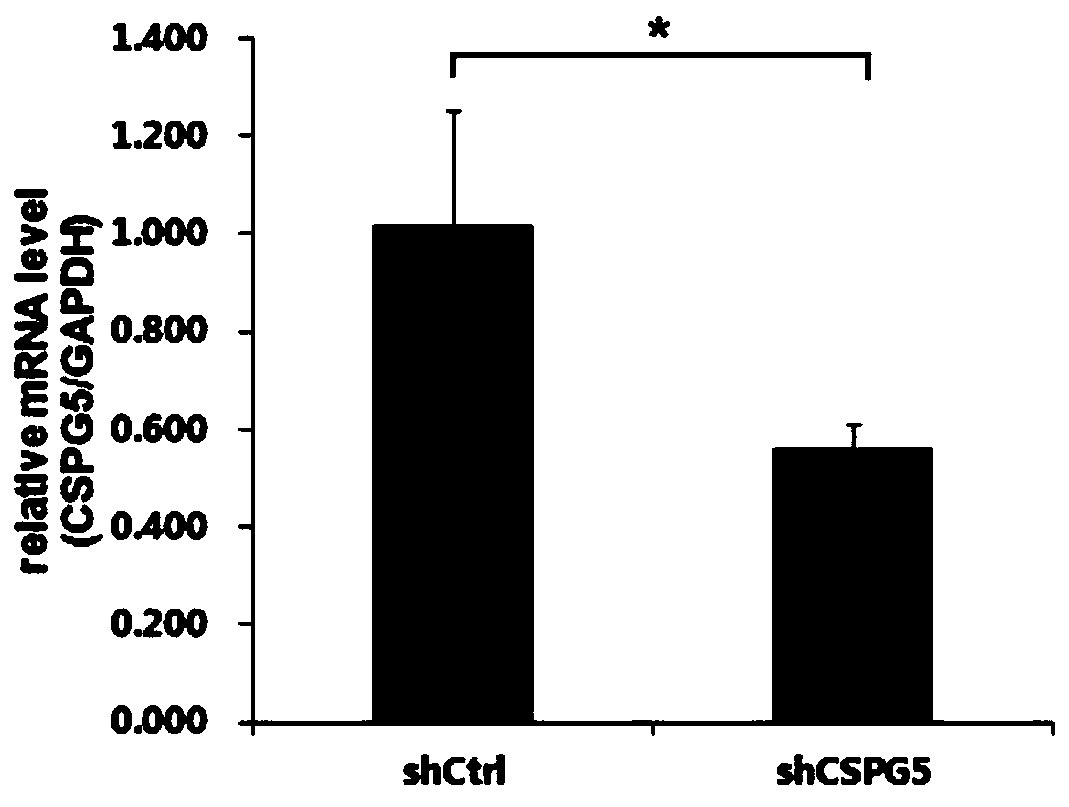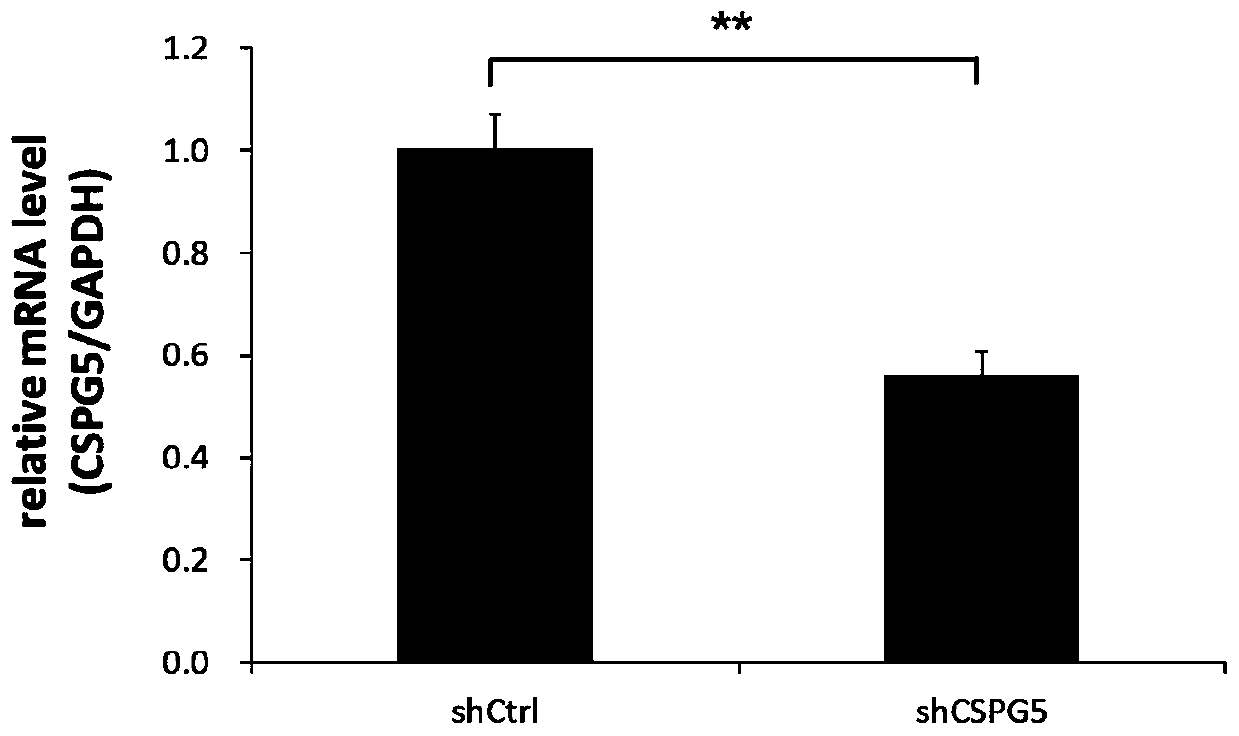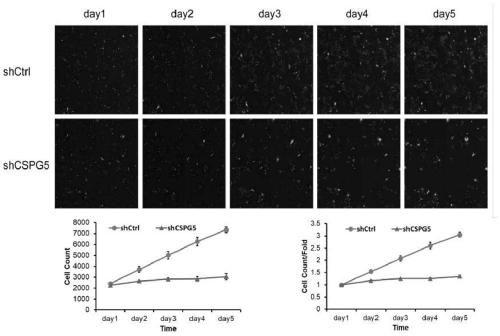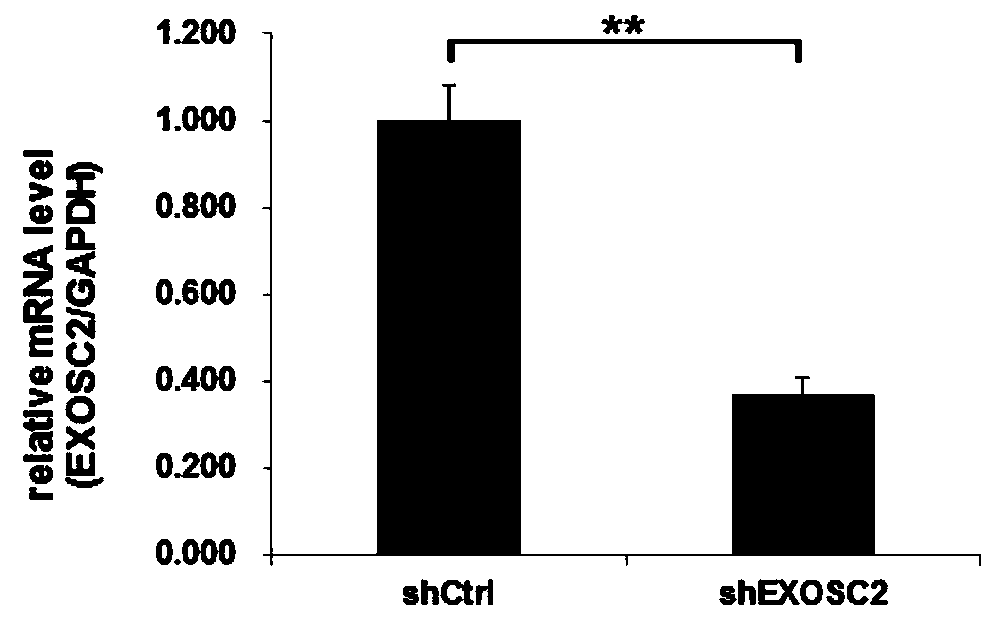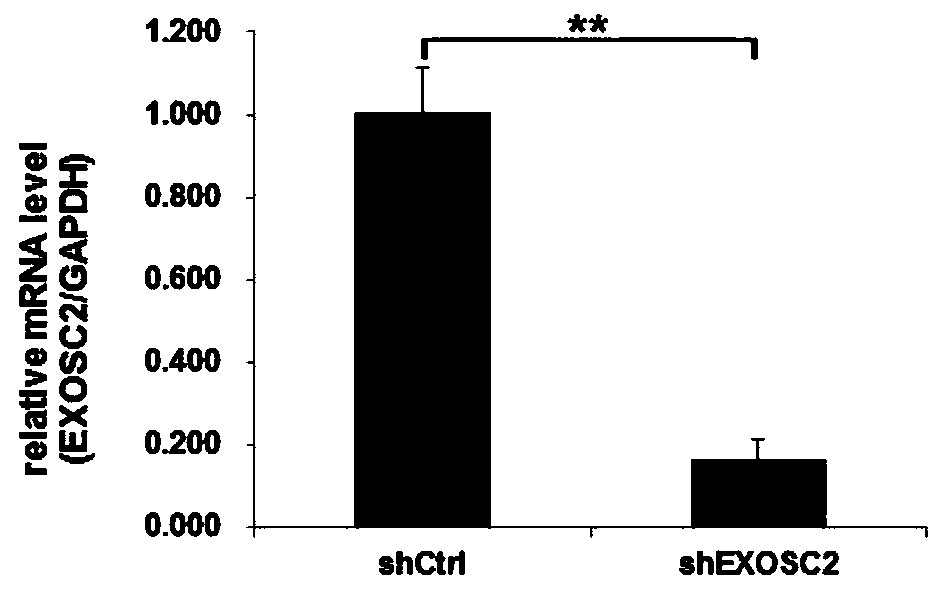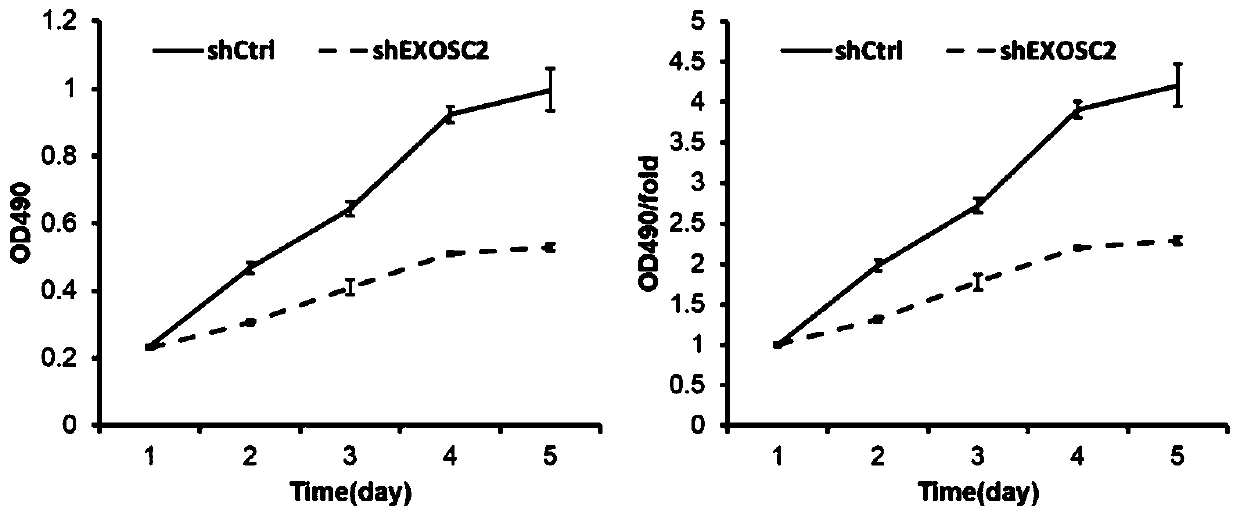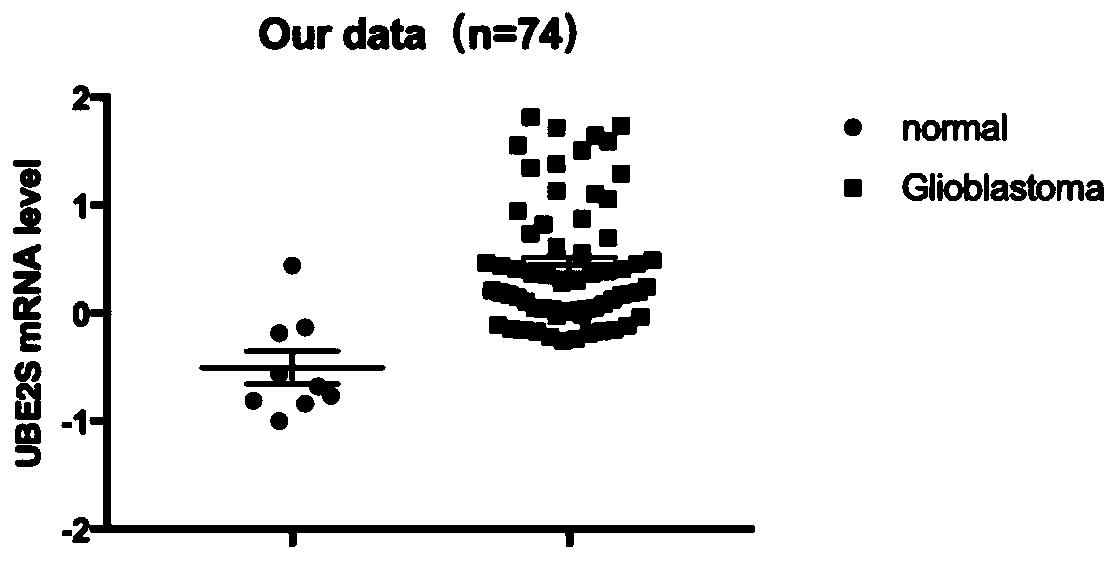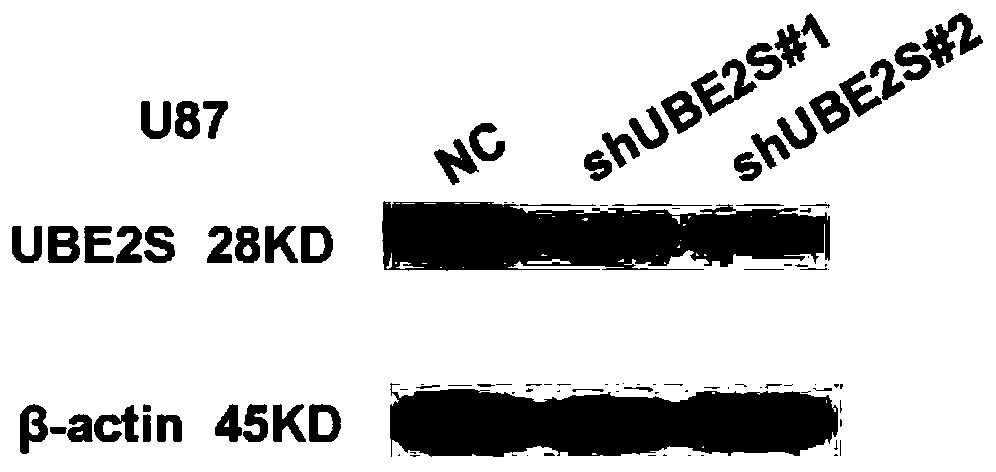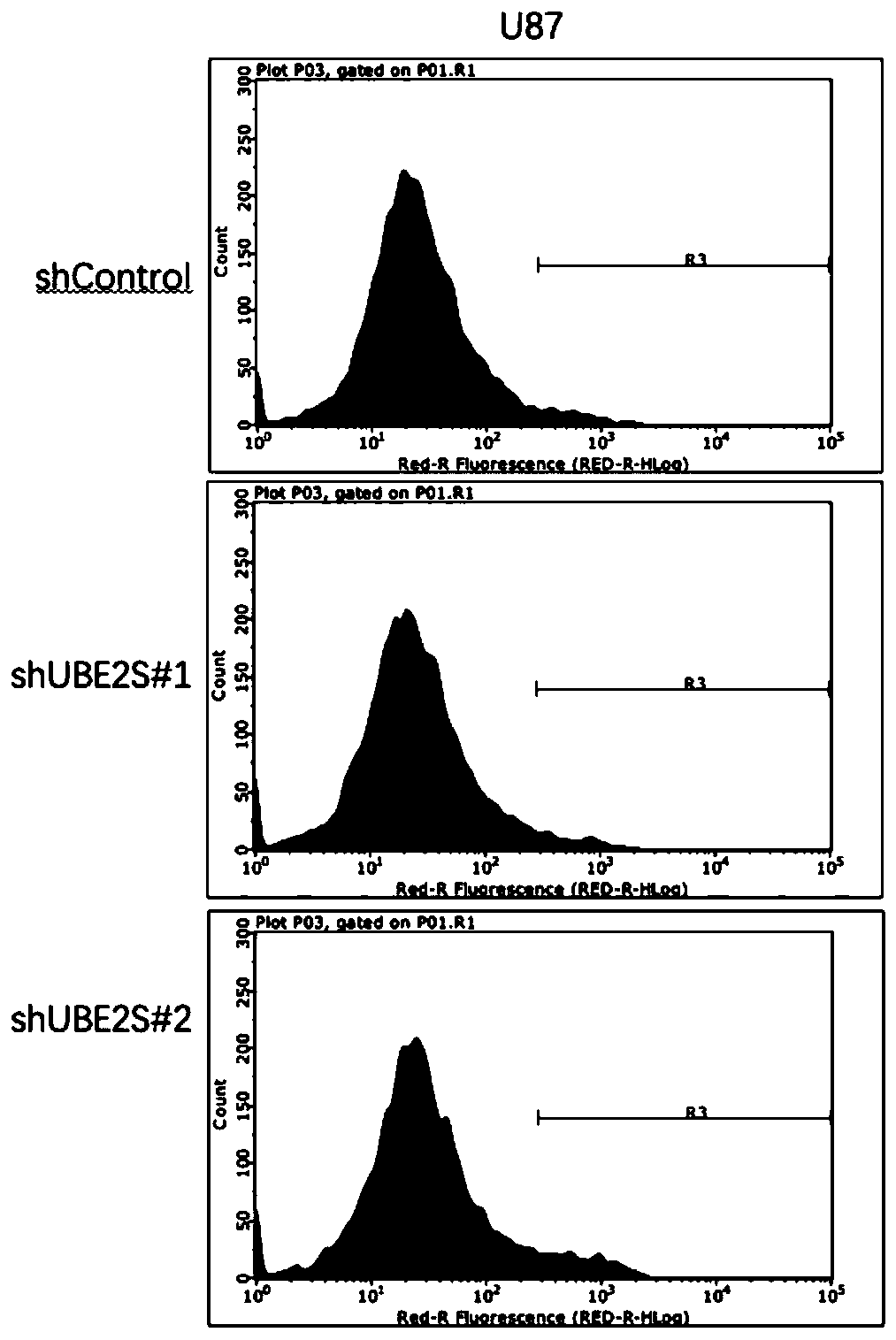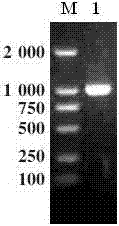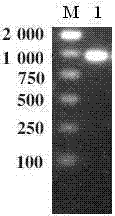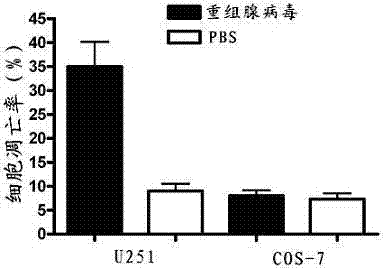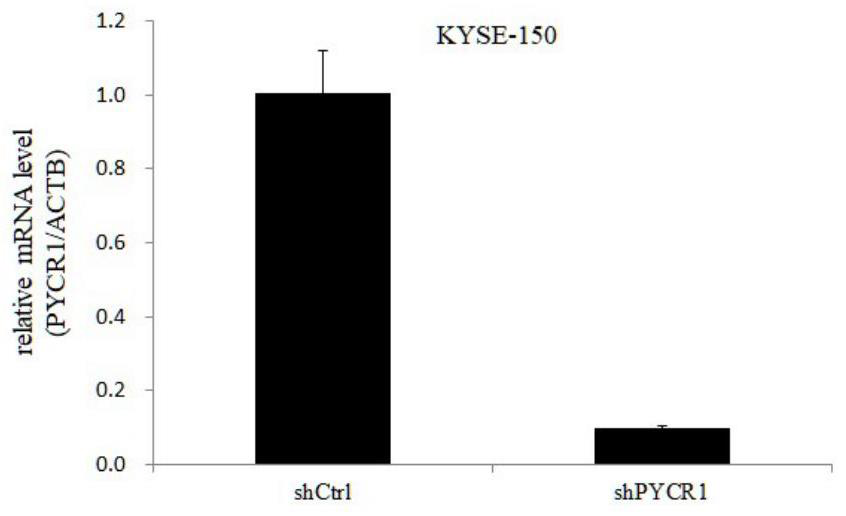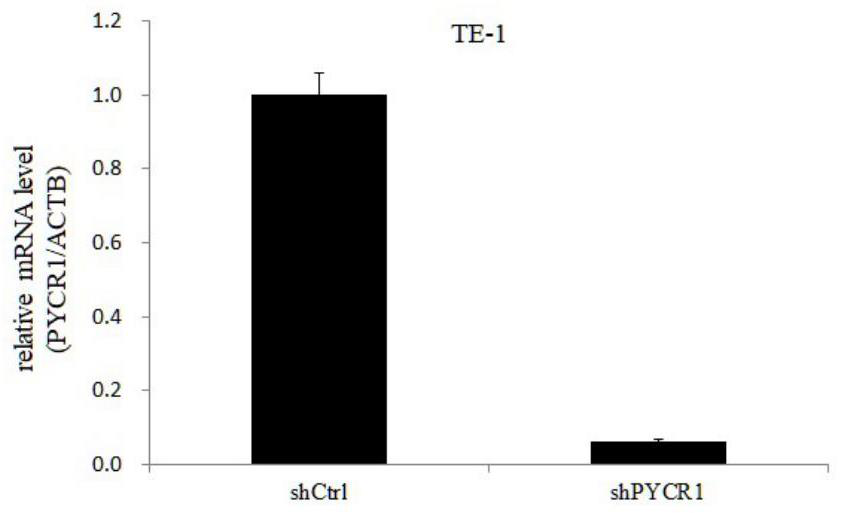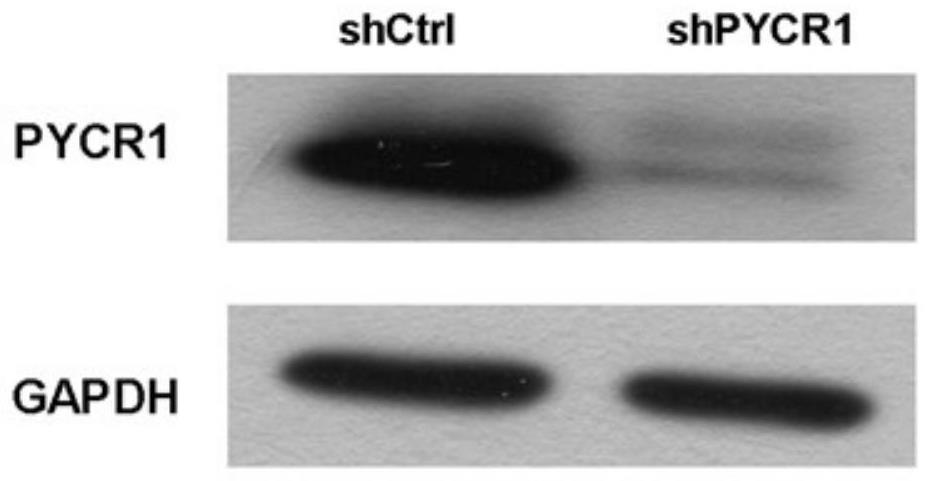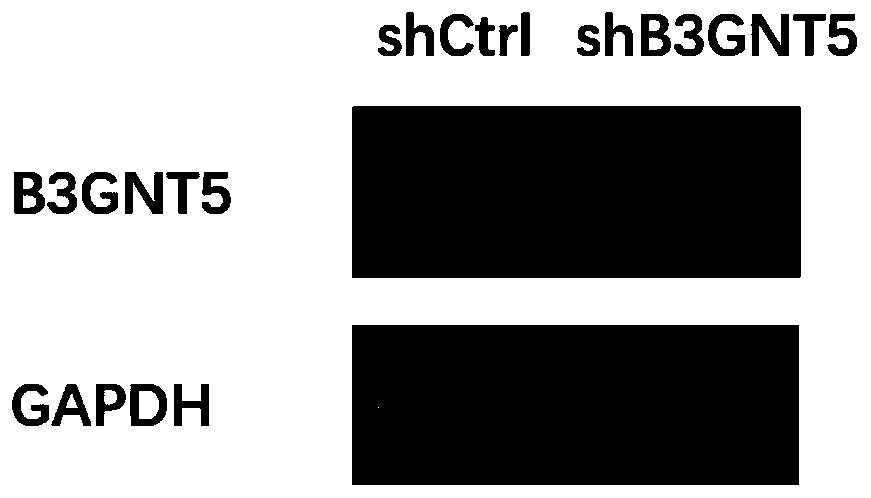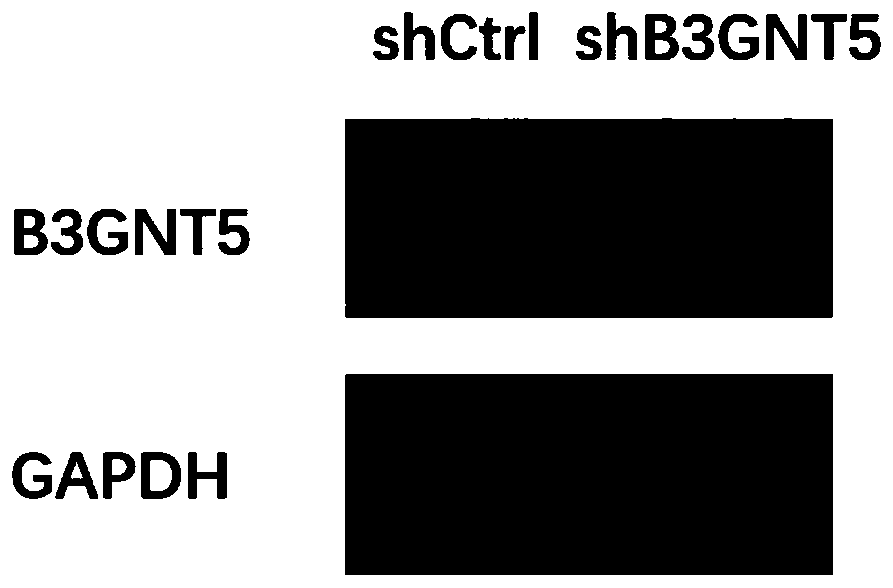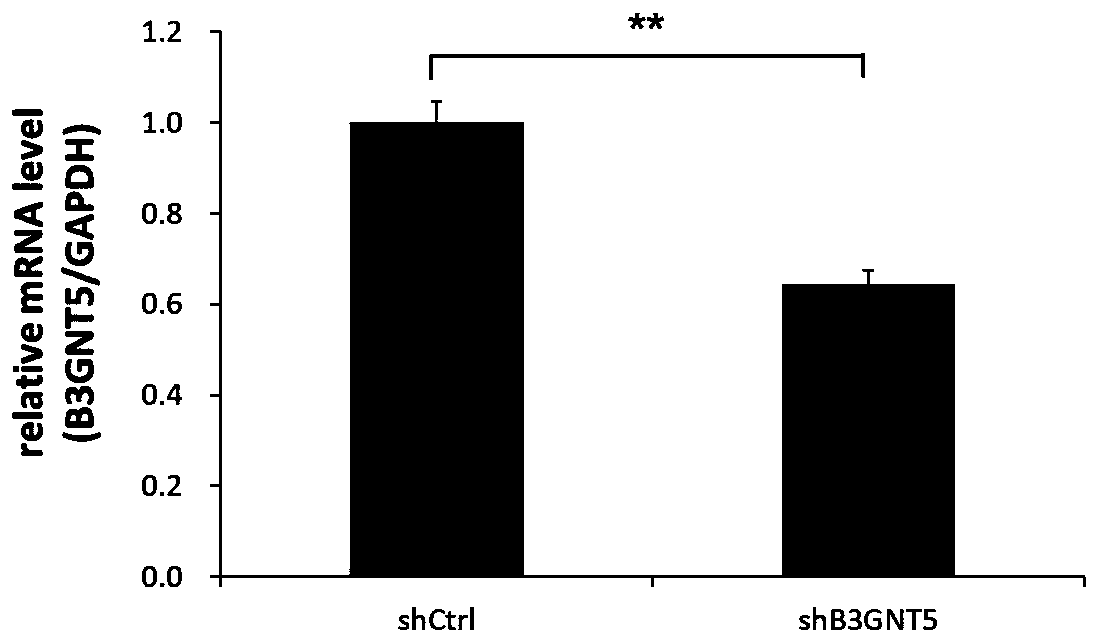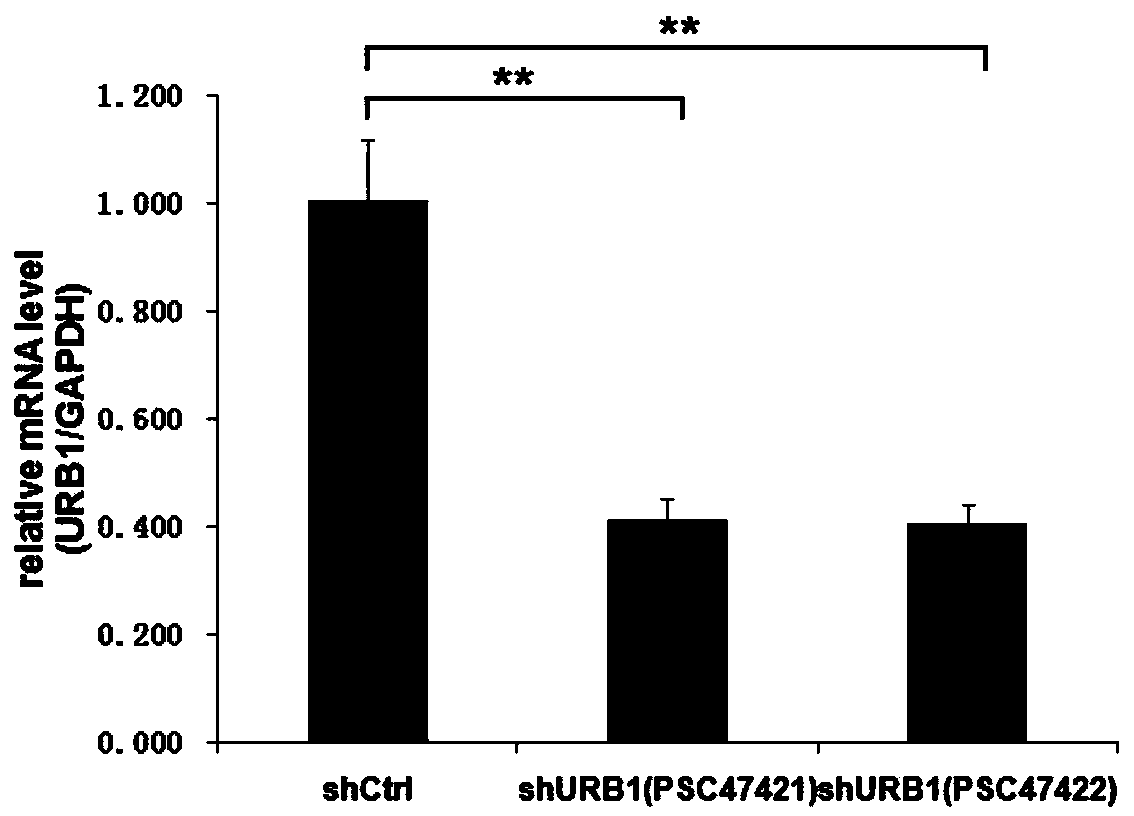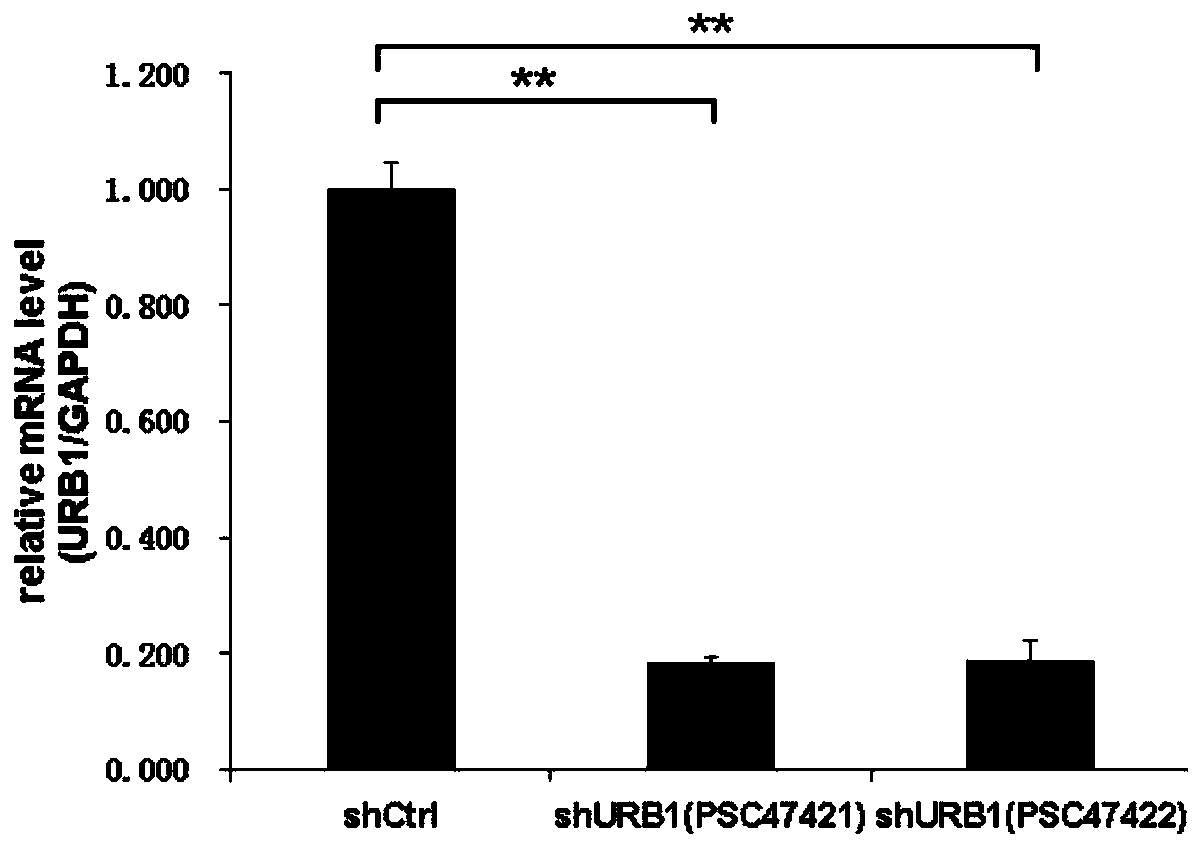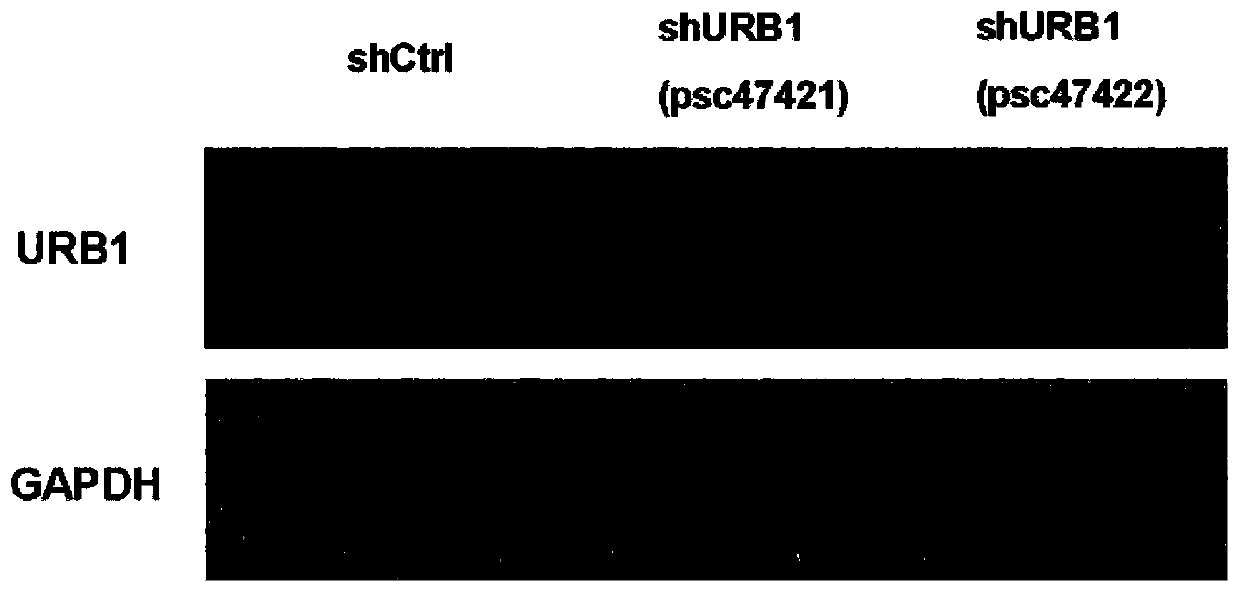Patents
Literature
Hiro is an intelligent assistant for R&D personnel, combined with Patent DNA, to facilitate innovative research.
36results about How to "Suppress cloning" patented technology
Efficacy Topic
Property
Owner
Technical Advancement
Application Domain
Technology Topic
Technology Field Word
Patent Country/Region
Patent Type
Patent Status
Application Year
Inventor
New use of isoliquiritigenin and derivative
InactiveCN104887650APrevent proliferationSuppress cloningKetone active ingredientsAntineoplastic agentsChemotherapeutic drugsDrug resistance
The invention provides a new use of isoliquiritigenin and its derivative, and especially provides application of isoliquiritigenin, new isoliquiritigenin, natural plants containing isoliquiritigenin and its derivative or its extract in tumor resistance and synergists of chemotherapeutic drugs or drugs reducing the drug resistance of chemotherapeutic drugs.
Owner:陈建萍
Small-molecular novel-miR-1 and osteosarcoma medicine
InactiveCN104498496ASuppress cloningPrevent proliferationGenetic material ingredientsAntineoplastic agentsFhit geneBiology
The invention provides a small-molecular novel-miR-1 with a base sequence of a sequence table SEQ.ID.No.1. Bioinformatics analysis on the small-molecular novel-miR-1 indicates that the small-molecular RNA is related to the osteosarcoma expressed potential target gene; meanwhile, a series of growth and propagation related cell biology experiments are conducted on the screened novel-miR-1 expressed osteosarcoma cells based on the bioinformatics analysis, and the result indicates that the period of the novel-miR-1 transfected osteosarcoma cells is sluggish, the proliferation of the osteosarcoma cells is inhibited, and the transfer ability and tumor forming ability of the tumor cells decline; the small-molecular novel-miR-1 is used as a medicine against osteosarcoma simply by transfecting the novel-miR-1 and intruding into the sick osteosarcoma tissue part; and after transfection, the cloning and proliferation of the osteosarcoma cells can be inhibited by changing the gene expression in the osteosarcoma cells.
Owner:THE SECOND PEOPLES HOSPITAL OF SHENZHEN
Application of MTHFD1L (methylenetetrahydrofolate dehydrogenase (NADP+dependent)1like) inhibitor to preparation of tongue squamous cell carcinoma treatment medicament
ActiveCN108653737APrevent proliferationSuppress cloningAntineoplastic agentsPharmaceutical active ingredientsSquamous CarcinomasMethylenetetrahydrofolate dehydrogenase
The invention belongs to the field of the biopharmaceutical research, and particularly relates to application of a MTHFD1L (methylenetetrahydrofolate dehydrogenase (NADP+dependent)1like) inhibitor. Bywide and deep research, the invention shows that MTHFD1L can be used as a tongue squamous cell carcinoma treatment target for the first time. The MTHFD1L inhibitor can inhibit cell multiplication oftongue squamous cell carcinoma, promote cell apoptosis of tongue squamous cell carcinoma, inhibit cell cloning, inhibit tumorigenesis of tongue squamous cell carcinoma, treat tongue squamous cell carcinoma and develops a new direction for treatment of tongue squamous cell carcinoma.
Owner:XUZHOU CENT HOSPITAL +1
Application of human DUS4L gene and related product of human DUS4L gene
ActiveCN110938691APrevent proliferationInhibit apoptosisOrganic active ingredientsMicrobiological testing/measurementCancer cellOncology
The invention belongs to the field of biomedicine research, and specifically relates to an application of a human DUS4L gene as a target in preparation of a lung cancer therapeutic drug. Through extensive and in-depth research, results find that after an RNAi method is used to down-regulate the expression of the human DUS4L gene, proliferation of lung cancer cells can be effectively inhibited, cell apoptosis can be promoted, and the growth process of lung cancer can be effectively controlled. An siRNA or a nucleic acid construct containing an siRNA sequence and lentivirus provided by the invention can specifically inhibit the proliferation ability of the lung cancer cells, inhibit cloning of the lung cancer cells, affect a cycle of the lung cancer cells, promote apoptosis of the lung cancer cells, and inhibit growth of the lung cancer cells, thereby treating the lung cancer and opening up a novel direction for treatment of the lung cancer.
Owner:LANZHOU UNIVERSITY +1
Application of human SHCBP1 gene and related product
ActiveCN110791566APrevent proliferationInhibit apoptosisOrganic active ingredientsMicrobiological testing/measurementCancer cellThyroid gland cancer
The invention belongs to the field of biological medicine research, and particularly relates to application of a human SHCBP1 gene used as a target in preparing a thyroid cancer treatment medicine orpreparing a thyroid cancer diagnosis medicine. Through the broad and deep research, the invention discovers that after the expression of the human SHCBP1 gene is down-regulated by adopting an RNAi method, the multiplication of thyroid cancer cells can be effectively inhibited, the cell apoptosis is promoted, and the growth process of thyroid cancer can be effectively controlled. The siRNA or a nucleic acid building body and a slow virus containing the siRNA can specifically inhibit a multiplication capacity of the thyroid cancer cells, inhibit a tumor formation capacity of the thyroid cancer cells in a human body, promote the thyroid cancer cell apoptosis, inhibit the cloning of the thyroid cancer cells, inhibit a thyroid cancer cell metastasis capacity, inhibit a thyroid cancer cell transfer capacity and change the period distribution of the thyroid cancer cells so as to treat the thyroid cancer, so that a new direction is opened for thyroid cancer treatment.
Owner:XUZHOU CENT HOSPITAL
Application of human HIST1H2BK gene and related products
PendingCN110904104APrevent proliferationInhibit apoptosisOrganic active ingredientsMicrobiological testing/measurementCancer cellApoptosis
The invention belongs to the field of biomedical research, and particularly relates to application of human HIST1H2BK gene as a target in preparation of drugs used for treating liver cancer. It is found through wide and deep research that proliferation of liver cancer cells can be effectively inhibited, apoptosis can be promoted and the growth process of liver cancer can be effectively controlledafter the expression of human HIST1H2BK gene is down-regulated by adopting an RNAi method. A siRNA provided by the invention, or a nucleic acid construct and lentivirus containing the siRNA sequence can specifically inhibit the proliferation rate of liver cancer cells, promote apoptosis of liver cancer cells, inhibit cloning of liver cancer cells and inhibit growth of liver cancer cells, so that liver cancer is treated, and a new direction is provided for liver cancer treatment.
Owner:广西医科大学附属肿瘤医院
Application of human PSMD7 gene and related product
InactiveCN111803633APrevent proliferationInhibit apoptosisOrganic active ingredientsAntibody ingredientsPancreas CancersApoptosis
The present invention belongs to the field of biological medicine research and specifically relates to an application of a human PSMD7 gene serving as a target to preparation of a drug for treating pancreatic cancer. Found by extensive and deep research, after the expression of the human PSMD7 gene is reduced by adopting an RNAi method, the proliferation of pancreatic cancer cells may be effectively inhibited, cell apoptosis is promoted, and the growth process of the pancreatic cancer may be effectively controlled. siRNA or a nucleic acid construct containing an siRNA sequence and lentivirus provided by the present invention is capable of specifically inhibiting the proliferation capacity of the pancreatic cancer cells, the cloning of the pancreatic cancer cells, the apoptosis of the pancreatic cancer cells, the metastasis capacity of the pancreatic cancer cells and the growth of the pancreatic cancer, thereby treating pancreatic cancer and opening up a new direction for treating pancreatic cancer.
Owner:AFFILIATED HOSPITAL OF JIANGNAN UNIV
Application and correlation product of human IMPA2 gene
InactiveCN110938692APrevent proliferationInhibit apoptosisOrganic active ingredientsHydrolasesApoptosisOncology
The invention belongs to the field of biopharmaceutical research, and particularly relates to an application of a human IMPA2 gene as a target to preparation of drugs for treating cervical cancer or drugs for diagnosis of cervical cancer. Through wide and deep research, the inventor finds that after an RNAi method is adopted for reducing the expression of the human IMPA2 gene, proliferation of cervical carcinoma cells can be effectively restrained, apoptosis is promoted, and growth process of the cervical cancer can be effectively controlled. siRNA or a nucleic acid constructor containing thesiRNA sequence, and a slow virus provided by the invention can specially restrain proliferation rate of the cervical carcinoma cells, can promote the apoptosis of the cervical carcinoma cells, can restrain cloning of the cervical carcinoma cells, can influence the period of the cervical carcinoma cells, and can restrain growth of the cervical cancer, so as to treat the cervical cancer and open upa new direction for treatment of the cervical cancer.
Owner:THE SECOND XIANGYA HOSPITAL OF CENT SOUTH UNIV
Application of human CCDC154 gene and related product
ActiveCN110863047APrevent proliferationInhibit apoptosisOrganic active ingredientsMicrobiological testing/measurementCancer cellApoptosis
The invention belongs to the field of biomedical research, and particularly relates to an application of a human CCDC154 gene as a target in preparation of a liver cancer treatment drug. Through the wide and deep research, proliferation of liver cancer cells can be effectively inhibited after expression of the human CCDC154 gene is reduced by adopting an RNAi method, apoptosis is promoted, and thegrowth process of liver cancer can be effectively controlled. The siRNA or a nucleic acid construct containing the siRNA sequence and the lentivirus provided by the invention can specifically inhibitthe proliferation rate and proliferation activity of liver cancer cells, promote apoptosis of the liver cancer cells, inhibit cloning of the liver cancer cells and inhibit growth of liver cancer, sothat liver cancer is treated, and a new direction is opened up for liver cancer treatment.
Owner:THE FIRST AFFILIATED HOSPITAL OF MEDICAL COLLEGE OF XIAN JIAOTONG UNIV
Amide small-molecule organic compound taking indole or indole analogue as parent nucleus structure, application and preparation method of amide small-molecule organic compound
ActiveCN109879790AThe synthetic route is simpleSave raw materialsOrganic active ingredientsOrganic chemistryImmunologic disordersAutoimmune condition
The invention discloses an amide small-molecule organic compound shown in formulas (I) and (II) and based on an indole or indole analogue as a parent nucleus structure or a hydrate or pharmaceuticallyacceptable salt of the amide small-molecule organic compound. The invention also discloses application of the compound and a pharmaceutical composition containing the compound or the hydrate or the pharmaceutically acceptable salt thereof in prevention and / or treatment of various tumors and other diseases, and in prevention and treatment of autoimmune diseases, allergy, inflammation and other diseases as a histone deacetylase inhibitor. The invention also provides a preparation method of the compound and derivatives thereof.
Owner:EAST CHINA NORMAL UNIVERSITY +1
Terpyridyl ligand containing nitrogen mustard as well as preparation method and application of terpyridyl ligand
ActiveCN112961103ASimple structureHas antitumor activityOrganic chemistryAntineoplastic agentsNitrogen mustardChemical compound
The invention relates to the field of medical intermediates and anti-tumor drugs, in particular to a terpyridyl ligand containing nitrogen mustard and a preparation method and application of the terpyridyl ligand. The preparation method comprises the following steps: by taking N, N-bis (2-hydroxyethyl)-aniline as a raw material, carrying out Vilsmeier-Haack reaction to prepare an aromatic aldehyde intermediate containing nitrogen mustard, and then further reacting with 2-acetylpyridine to prepare the terpyridyl ligand L1 containing nitrogen mustard. The method is simple and feasible, has low requirements on equipment, and is easy to separate and purify target compounds. The compound has high symmetry in structure, and is a terpyridyl derivative which has the simplest structure and contains aromatic nitrogen mustard at present. Various metal complexes containing nitrogen mustard can be designed as ligands of various metal ions. In-vitro anti-tumor experiments show that the compound has the characteristics of excellent anti-tumor effect, capability of effectively inhibiting growth, migration, crawling, cloning and the like of tumor cells, and has wide research and development values in the field of anti-tumor drugs.
Owner:GUANGDONG OCEAN UNIVERSITY
Use of human eddm3a gene and related products
InactiveCN111035762BPrevent proliferationInhibit apoptosisNucleic acid vectorFermentationApoptosisOncology
Owner:FOURTH MILITARY MEDICAL UNIVERSITY
Application of human UAP1L1 gene and related product
PendingCN111926010APrevent proliferationInhibit apoptosisOrganic active ingredientsGenetic material ingredientsImmunologyProliferation rate
The invention belongs to the field of biomedical research, and particularly relates to application of a human UAP1L1 gene as a target in preparation of gastric cancer treatment drugs or gastric cancerdiagnosis drugs. It is found through extensive and intensive researches that after the expression of the human UAP1L1 gene is down-regulated by adopting an RNAi method, the proliferation of gastric cancer cells can be effectively inhibited, the apoptosis can be promoted, and the growth process of gastric cancer can be effectively controlled. The siRNA or the nucleic acid construct containing thesiRNA sequence and the lentivirus provided by the invention can specifically inhibit the proliferation rate of gastric cancer cells, promote apoptosis of the gastric cancer cells, inhibit tumor formation of the gastric cancer cells, inhibit cloning of the gastric cancer cells and inhibit growth of the gastric cancer, so that the gastric cancer is treated, and a new direction is opened up for treatment of the gastric cancer.
Owner:上海市静安区中心医院
A kind of terpyridine ligand of nitrogen mustard and its preparation method and application
ActiveCN112961103BSimple structureHas antitumor activityOrganic chemistryAntineoplastic agentsAnilineBiology
The invention relates to the fields of pharmaceutical intermediates and antineoplastic drugs, in particular to a terpyridine ligand of nitrogen mustard and its preparation method and application. Using N,N-bis(2-hydroxyethyl)-aniline as raw material, the aromatic aldehyde intermediate of nitrogen mustard was prepared by Vilsmeier-Haack reaction, and then further reacted with 2-acetylpyridine to prepare the terpyridine ligand of nitrogen mustard L1. The method is simple and easy to implement, has low requirements on equipment, and is easy to separate and purify the target compound. The compound has good symmetry in structure, and is currently the terpyridine derivative with the simplest structure and aromatic nitrogen mustard. It can be used as a ligand for various metal ions to design various metal complexes of nitrogen mustards. In vitro anti-tumor experiments show that the compound has excellent anti-tumor effect, can effectively inhibit the growth, migration, crawling and cloning of tumor cells, and has extensive research and development value in the field of anti-tumor drugs.
Owner:GUANGDONG OCEAN UNIVERSITY
Use of human lsm5 gene and related products
ActiveCN110882390BPrevent proliferationInhibit apoptosisFermentationAntineoplastic agentsLentivirusPharmaceutical drug
The invention belongs to the field of biomedical research, and specifically relates to the use of human LSM5 gene as a target in the preparation of colorectal cancer treatment drugs. After extensive and in-depth research, the present invention finds that the RNAi method can effectively inhibit the proliferation of colorectal cancer cells, promote cell apoptosis, and effectively control the growth process of colorectal cancer after down-regulating the expression of human LSM5 gene. The siRNA provided by the present invention or the nucleic acid construct containing the siRNA sequence, and the lentivirus can specifically inhibit the proliferation rate and proliferation ability of colorectal cancer cells, promote the apoptosis of colorectal cancer cells, inhibit the cloning of colorectal cancer cells, and inhibit the cloning of colorectal cancer cells. Cancer growth, so as to treat colorectal cancer, open up a new direction for the treatment of colorectal cancer.
Owner:THE FIRST AFFILIATED HOSPITAL OF MEDICAL COLLEGE OF XIAN JIAOTONG UNIV
Application of human DEPDC1 gene, and related product
PendingCN111269910APrevent proliferationInhibit apoptosisOrganic active ingredientsNucleic acid vectorOncologyCell cycle
The invention belongs to the field of biomedical research, and particularly relates to application of a human DEPDC1 gene as a target in preparation of tongue squamous cell carcinoma treatment drugs or tongue squamous cell carcinoma diagnosis drugs. Through wide and deep research, it is found that proliferation of tongue squamous cell carcinoma cells can be effectively inhibited and cell apoptosisis promoted after expression of a human DEPDC1 gene is lowered through an RNAi method, so that the growth process of tongue squamous cell carcinoma can be effectively controlled. The siRNA or the nucleic acid construct containing the siRNA sequence and the lentivirus provided by the invention can specifically inhibit the proliferation rate of tongue squamous cell carcinoma cells, promote apoptosis of the tongue squamous cell carcinoma cells, inhibit cloning of the tongue squamous cell carcinoma cells, influence the period of the tongue squamous cell carcinoma cells and inhibit growth of the tongue squamous cell carcinoma cells, so that the tongue squamous cell carcinoma is treated, and a new direction is opened up for tongue squamous cell carcinoma treatment.
Owner:THE SECOND AFFILIATED HOSPITAL ARMY MEDICAL UNIV
Application of human DNAJC24 gene and related products
InactiveCN111068056APrevent proliferationInhibit apoptosisOrganic active ingredientsMicrobiological testing/measurementCell invasionPulmonary cancer
The invention belongs to the field of research of biomedicines, and particularly relates to application of a human DNAJC24 gene as a target to preparation of medicines for treating lung cancers or medicines for diagnosing the lung cancers. Based on extensive and profound researching finding, by adopting a RNAi method, expression of the human DNAJC24 is regulated-down, so that proliferation of thelung cancer cells can be effectively inhibited and cell apoptosis is promoted, and a growth progress of the lung cancers can be effectively controlled. According to the siRNA or a nucleic acid construction body including an siRNA sequence and chronic viruses provided by the invention, the proliferation velocity of the lung cancer cells can be specifically inhibited, the cell apoptosis of the lungcancers is promoted, cell cloning of the lung cancers is inhibited, cell invasion of the lung cancers is inhibited, cell transferring of the lung cancers is inhibited, and growth of the lung cancers is inhibited, so that the lung cancers can be treated, and a new direction is developed for treatment of the lung cancers.
Owner:TIANJIN MEDICAL UNIV CANCER INST & HOSPITAL
Application of human TMEFF1 gene and related products
ActiveCN110904107APrevent proliferationInhibit apoptosisOrganic active ingredientsMicrobiological testing/measurementLentivirusApoptosis
The invention,, which belongs to the field of biomedical research, particularly relates to application of a human TMEFF1 gene as a target in preparation of leukemia treatment drugs or leukemia diagnosis drugs. The wide and deep research finds that proliferation of leukemia cells can be effectively inhibited and apoptosis can be promoted after expression of the human TMEFF1 gene is down-regulated by adopting an RNAi method and thus the growth process of leukemia tumor cells can be effectively controlled. The siRNA or the nucleic acid construct or lentivirus containing the siRNA sequence can specifically inhibit the proliferation rate of leukemia tumor cells, promote apoptosis of the leukemia tumor cells, inhibit cloning of the leukemia tumor cells, influence the period of the leukemia tumorcells and inhibit development of leukemia, so that the leukemia is treated. Therefore, an novel direction is opened up for leukemia treatment.
Owner:BEIJING CHILDRENS HOSPITAL AFFILIATED TO CAPITAL MEDICAL UNIV
Application of human TTLL4 gene and related products
PendingCN111041028APrevent proliferationInhibit apoptosisOrganic active ingredientsNucleic acid vectorCancer cellApoptosis
The invention belongs to the field of biomedical research, and particularly relates to application of a human TTLL4 gene as a target in preparation of lung cancer treatment drugs. Results of wide anddeep research show that proliferation of lung cancer cells can be effectively inhibited, cell apoptosis is promoted and the growth process of the lung cancer can be effectively controlled after expression of the human TTLL4 gene is down-regulated by adopting an RNAi method. An siRNA or a nucleic acid construct and a lentivirus containing the siRNA sequence provided by the invention can specifically inhibit the proliferation rate of lung cancer cells, promote apoptosis of the lung cancer cells, inhibit cloning of the lung cancer cells, inhibit invasion of the lung cancer cells, inhibit metastasis of the lung cancer cells and inhibit growth of the lung cancer cells; therefore, a new direction is opened up for lung cancer treatment.
Owner:THE PEOPLES HOSPITAL SHAANXI PROV
Application of human EDDM3A gene and related products
InactiveCN111035762APrevent proliferationInhibit apoptosisNucleic acid vectorFermentationApoptosisOncology
The invention belongs to the field of biomedical research, and particularly relates to application of a human EDDM3A gene as a target in preparation of gastric cancer treatment drugs. Results of wideand deep research show that the proliferation of gastric cancer cells can be effectively inhibited, cell apoptosis is promoted and the growth process of the gastric cancer can be effectively controlled after expression of the human EDDM3A gene is down-regulated by adopting an RNAi method. A siRNA or a nucleic acid construct and a lentivirus containing the siRNA sequence provided by the invention can specifically inhibit the proliferation rate of gastric cancer cells, promote apoptosis of the gastric cancer cells, inhibit cloning of the gastric cancer cells, inhibit the metastasis capability ofthe gastric cancer cells and inhibit growth of the gastric cancer, so the gastric cancer is treated, and a new direction is opened up for treatment of the gastric cancer.
Owner:FOURTH MILITARY MEDICAL UNIVERSITY
Use of mthfd1l inhibitor in preparation of tongue squamous cell carcinoma therapeutic drug
ActiveCN108653737BPrevent proliferationSuppress cloningAntineoplastic agentsPharmaceutical active ingredientsSquamous CarcinomasMethylenetetrahydrofolate dehydrogenase
The invention belongs to the field of the biopharmaceutical research, and particularly relates to application of a MTHFD1L (methylenetetrahydrofolate dehydrogenase (NADP+dependent)1like) inhibitor. Bywide and deep research, the invention shows that MTHFD1L can be used as a tongue squamous cell carcinoma treatment target for the first time. The MTHFD1L inhibitor can inhibit cell multiplication oftongue squamous cell carcinoma, promote cell apoptosis of tongue squamous cell carcinoma, inhibit cell cloning, inhibit tumorigenesis of tongue squamous cell carcinoma, treat tongue squamous cell carcinoma and develops a new direction for treatment of tongue squamous cell carcinoma.
Owner:XUZHOU CENT HOSPITAL +1
Application of human CSPG5 gene and related product
PendingCN111073889APrevent proliferationInhibit apoptosisOrganic active ingredientsNucleic acid vectorCancer cellApoptosis
The invention belongs to the field of biomedical research, and particularly relates to application of a human CSPG5 gene as a target in preparation of liver cancer treatment drugs. Through wide and deep research, the invention finds that proliferation of liver cancer cells can be effectively inhibited, apoptosis is promoted and the growth process of liver cancer can be effectively controlled afterexpression of the human CSPG5 gene is down-regulated by adopting an RNAi method. The siRNA or a nucleic acid construct and lentivirus containing siRNA sequence provided by the invention can specifically inhibit the proliferation rate of the liver cancer cells, promote apoptosis of the liver cancer cells, inhibit cloning of the liver cancer cells, inhibit tumor formation of the liver cancer cellsand inhibit growth of the liver cancer, so that the liver cancer is treated, and a new direction is opened up for treatment of the liver cancer.
Owner:FOURTH MILITARY MEDICAL UNIVERSITY
Application of human EXOSC2 gene and related product
PendingCN111304328APrevent proliferationInhibit apoptosisOrganic active ingredientsMicrobiological testing/measurementLentivirusPharmaceutical drug
The invention belongs to the field of biomedical research, and particularly relates to application of a human EXOSC2 gene as a target in preparation of a drug for treating colorectal cancer. Through wide and deep research, it is found that: after expression of the human EXOSC2 gene is down-regulated by adopting an RNAi way, proliferation of colorectal cancer cells can be effectively inhibited, apoptosis is promoted and the growth process of colorectal cancer can be effectively controlled. The siRNA or a nucleic acid construct and lentivirus containing the siRNA sequence provided by the invention can specifically inhibit the proliferation rate of the colorectal cancer cells, promote apoptosis of the colorectal cancer cells, inhibit cloning of the colorectal cancer cells, inhibit invasion and metastasis of the colorectal cancer cells, and improve the survival rate of the colorectal cancer cells. Therefore, colorectal cancer is treated, and a new direction is opened up for colorectal cancer treatment.
Owner:唐蔚 +1
Uses and related products of human UBE2S gene
PendingCN111228502APrevent proliferationInhibit apoptosisOrganic active ingredientsLigasesLentivirusPharmaceutical drug
The present invention relates to the field of biomedical research and particularly to uses of a human UBE2S gene as a target in preparation of glioma therapeutic drugs. Extensive and in-depth researches find that after an RNAi method down-regulates expression of the human UBE2S gene, proliferation of glioma cells can be effectively inhibited, cell apoptosis is promoted and a growth process of gliomas is effectively controlled. A provided shRNA or a nucleic acid construct containing the shRNA sequence and a lentivirus containing the shRNA sequence can specifically inhibit proliferation rate ofthe glioma cells, promoteapoptosis of the glioma cells, inhibit cloning of the glioma cells, inhibit growth of the gliomas, thus treat the gliomas and open up new directions for treatment of the gliomas.
Owner:新疆医科大学第三附属医院
Traditional Chinese medicine oral liquid for treating leukemia and preparation method thereof
InactiveCN102600362BEnhance immune functionGrowth inhibitionPharmaceutical delivery mechanismAntineoplastic agentsPANAX NOTOGINSENG ROOTCurative effect
The invention relates to a traditional Chinese medicine oral liquid for treating leukemia, which is prepared by the following medicines in parts by weight: 1-10 parts of antelope's horn, 0.5-5 parts of bezoar, 1-10 parts of resina draconis, 10-200 parts of honeysuckle, 5-40 parts of largehead atractylodes rhizome, 10-40 parts of poria cocos, 10-80 parts of oldenlandia, 10-40 parts of radix ranunculi ternate, 5-30 parts of powdery paris polyphylla, 5-30 parts of edible tulip, 0.01-0.1 parts of arenobufagin, 2-20 parts of American ginseng, 2-10 parts of indigo naturalis, 3-10 parts of panax notoginseng, 5-20 parts of fructus lycii, 1-10 parts of cordyceps sinensis, 2-20 parts of flos carthami, 5-30 parts of angelica sinensis, and 5-20 parts of hippocampus. The traditional Chinese medicine oral liquid is prepared by adding an approximate amount of water into the abovementioned high-quality traditional Chinese medicinal materials to decoct for 30 minutes, obtaining the decoction after filtrating, repeatedly decocting the traditional Chinese medicinal materials for three times in this way, and obtaining the traditional Chinese medicine oral liquid for treating leukemia after concentrating and filling the liquid medicine filtered out at three times into bottles. The traditional Chinese medicine oral liquid has the advantages of being good in curative effect, free from relapse and tolerance, and low in toxic and side effects.
Owner:焦成玉
Regulatory-cytokine-induced anti-apoptotic molecule (CIAPIN1) recombinant adenovirus and preparation method and use thereof
InactiveCN102286435BHigh selectivityStrong characteristicPeptide/protein ingredientsMicroorganism based processesInducer CellsOncology
The invention discloses regulatory-CIAPIN1 gene recombinant adenovirus and a preparation method and use thereof. The recombinant adenovirus is obtained by inserting a CIAPIN1 gene expression cassette into the genome of a replication-deficient type-5 adenovirus, wherein the CIAPIN1 gene expression cassette consists of a survivin promoter, a CIAPIN1 gene and a terminator; and the expression of the CIAPIN1 gene is regulated by the survivin promoter. The recombinant adenovirus has high selectivity and specificity; by regulating the expression of the CIAPIN1 gene through the tumor specific survivin, the CIAPIN1 gene can be selectively expressed in glioma cells to inhibit cell cloning and induce cell apoptosis; and thus, glioma cells can be accurately killed with less damage to normal tissue cells. In-vivo experiments indicate that the regulatory-CIAPIN1 gene recombinant adenovirus can inhibit the growth of glioma cells and prolong the average survival period of tumor bearing nude mice; therefore, the regulatory-CIAPIN1 gene recombinant adenovirus can be used for preparing medicines for treating glioma and has a good development and application prospect in the field of gene therapy of glioma.
Owner:ARMY MEDICAL UNIV
Application of human LSM5 gene and related products
ActiveCN110882390APrevent proliferationInhibit apoptosisFermentationAntineoplastic agentsLentivirusPharmaceutical drug
The invention, which belongs to the field of biomedical research, particularly relates to application of a human LSM5 gene as a target in preparation of a colorectal cancer treatment drug. The wide and deep research discovers that the proliferation of colorectal cancer cells can be effectively inhibited and the apoptosis can be promoted by reducing the expression of the human LSM5 gene based on anRNAi method, thereby effectively controlling the growth process of colorectal cancer. According to the invention, the siRNA or the nucleic acid construct containing the siRNA sequence and the lentivirus can specifically inhibit the proliferation rate and proliferation capacity of colorectal cancer cells, promote apoptosis of the colorectal cancer cells, inhibit cloning of the colorectal cancer cells and inhibit growth of the colorectal cancer cells, so that the colorectal cancer is treated and a new direction is opened up for colorectal cancer treatment.
Owner:THE FIRST AFFILIATED HOSPITAL OF MEDICAL COLLEGE OF XIAN JIAOTONG UNIV
Application of PYCR1 gene as target in preparation of esophageal cancer product and related product
PendingCN114146178APrevent proliferationInhibit apoptosisOrganic active ingredientsMicrobiological testing/measurementCancer cellLentivirus
The invention belongs to the field of biological medicines, and relates to application of a PYCR1 gene as a target in preparation of a product for treating and / or diagnosing esophageal cancer. After expression of the PYCR1 gene is down-regulated by adopting an RNAi method, proliferation, growth, migration and infiltration of esophageal cancer cells can be remarkably inhibited, apoptosis of cancer cells is promoted, and the growth process of esophageal cancer can be effectively controlled. The siRNA or the nucleic acid construct containing the siRNA sequence and the lentivirus provided by the invention can specifically inhibit the proliferation rate of esophageal cancer cells, promote apoptosis of the esophageal cancer cells, inhibit cloning of the esophageal cancer cells, inhibit invasion of the esophageal cancer cells, inhibit metastasis of the esophageal cancer cells and inhibit growth of the esophageal cancer, so that the siRNA or the nucleic acid construct containing the siRNA sequence and the lentivirus can be used for treating and detecting the esophageal cancer; wide application prospects are realized.
Owner:LANZHOU UNIV SECOND HOSPITAL
Application of human B3GNT5 gene and related product
ActiveCN110938630APrevent proliferationInhibit apoptosisOrganic active ingredientsMicrobiological testing/measurementCancer cellApoptosis
The invention, which belongs to the field of biomedical research, particularly relates to application of a human B3GNT5 gene as a target in preparation of a liver cancer treatment drug. The wide and deep research founds that proliferation of liver cancer cells can be effectively inhibited and the apoptosis can be promoted effectively after expression of the human B3GNT5 gene is down-regulated by adopting an RNAi method, so that the growth process of the liver cancer is effectively controlled. The siRNA or the nucleic acid construct containing the siRNA sequence and the lentivirus can specifically inhibit the proliferation rate of liver cancer cells, promote apoptosis of the liver cancer cells, inhibit cloning of the liver cancer cells and inhibit growth of the liver cancer, so that the liver cancer is treated. A novel direction is opened up for liver cancer treatment.
Owner:FOURTH MILITARY MEDICAL UNIVERSITY
Application of human URB1 gene and related products
ActiveCN110938628APrevent proliferationInhibit apoptosisOrganic active ingredientsMicrobiological testing/measurementLentivirusPharmaceutical drug
The invention, which belongs to the field of biomedical research, particularly relates to application of a human URB1 gene as a target in preparation of a colorectal cancer treatment drug. The wide and deep research discovers that proliferation of colorectal cancer cells can be effectively inhibited and apoptosis can be promoted after expression of the human URB1 gene is down-regulated by adoptingan RNAi method, thereby effectively controlling the growth process of the colorectal cancer. The siRNA or a nucleic acid construct containing the siRNA sequence and the lentivirus can specifically inhibit the proliferation rate of colorectal cancer cells, promote apoptosis of the colorectal cancer cells, inhibit cloning of the colorectal cancer cells and inhibit growth of the colorectal cancer, so that the colorectal cancer is treated. A novel direction is opened up for colorectal cancer treatment.
Owner:甘肃省人民医院
Features
- R&D
- Intellectual Property
- Life Sciences
- Materials
- Tech Scout
Why Patsnap Eureka
- Unparalleled Data Quality
- Higher Quality Content
- 60% Fewer Hallucinations
Social media
Patsnap Eureka Blog
Learn More Browse by: Latest US Patents, China's latest patents, Technical Efficacy Thesaurus, Application Domain, Technology Topic, Popular Technical Reports.
© 2025 PatSnap. All rights reserved.Legal|Privacy policy|Modern Slavery Act Transparency Statement|Sitemap|About US| Contact US: help@patsnap.com
